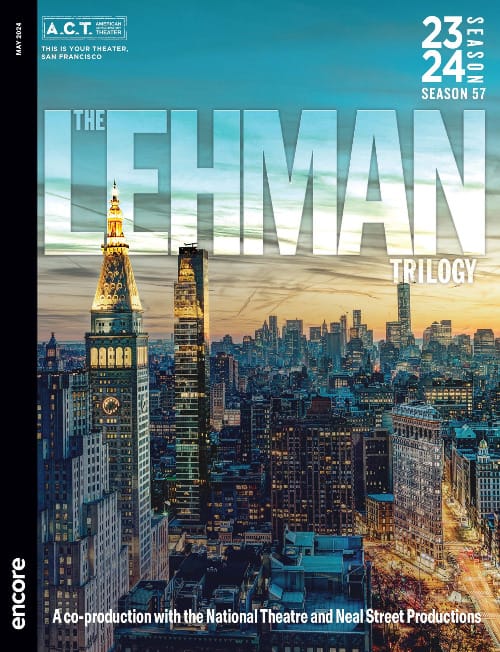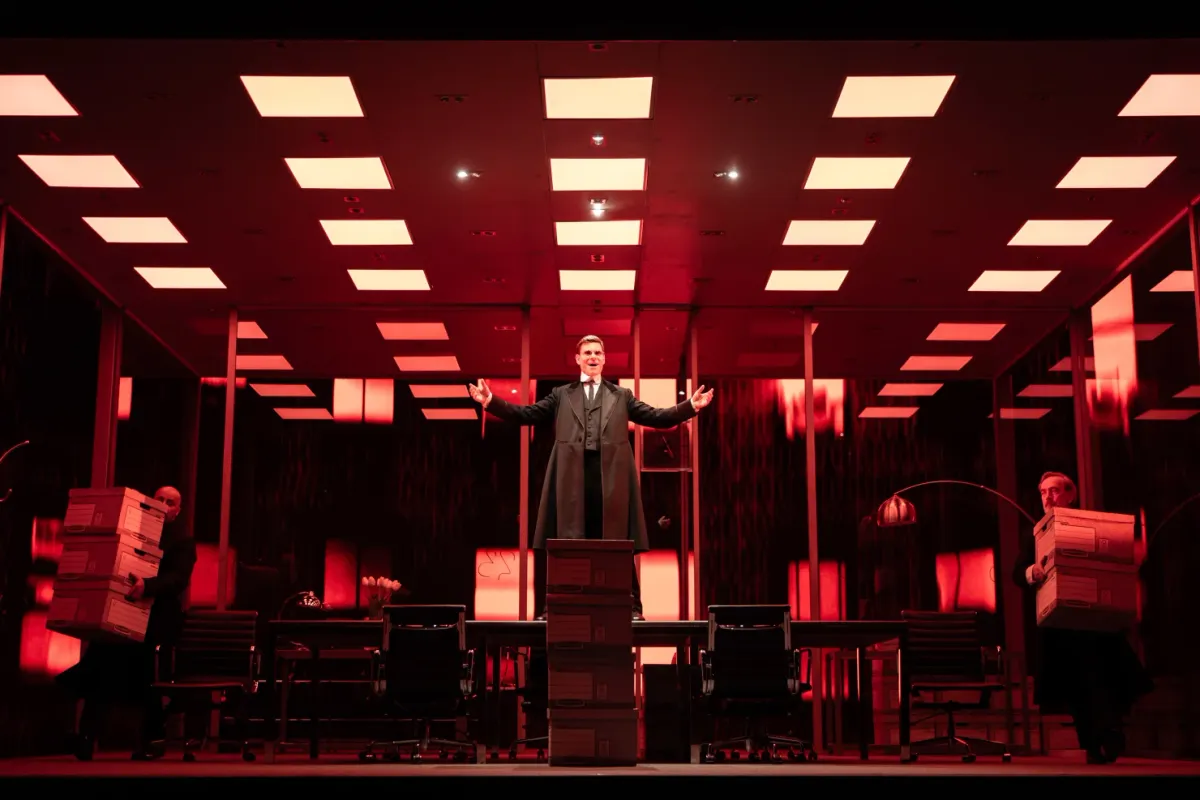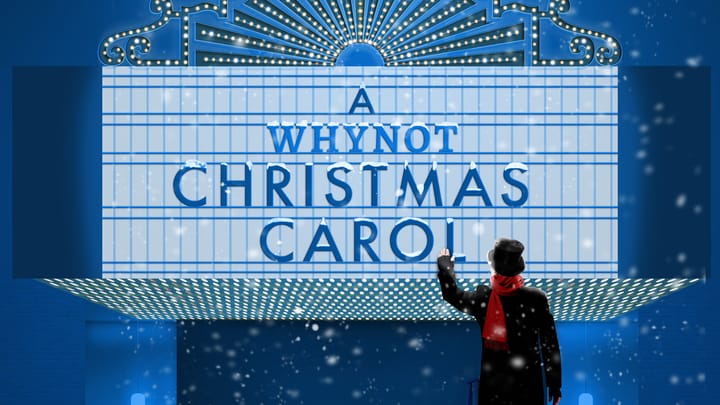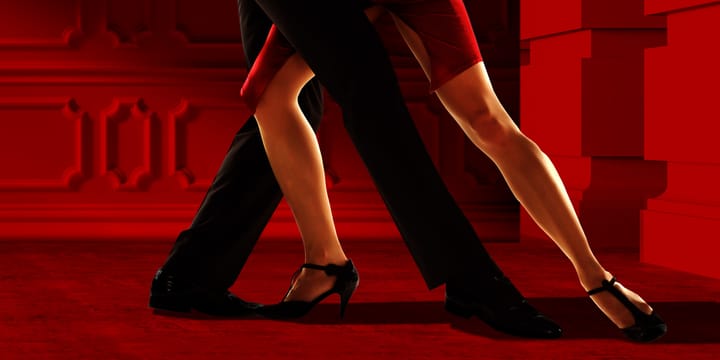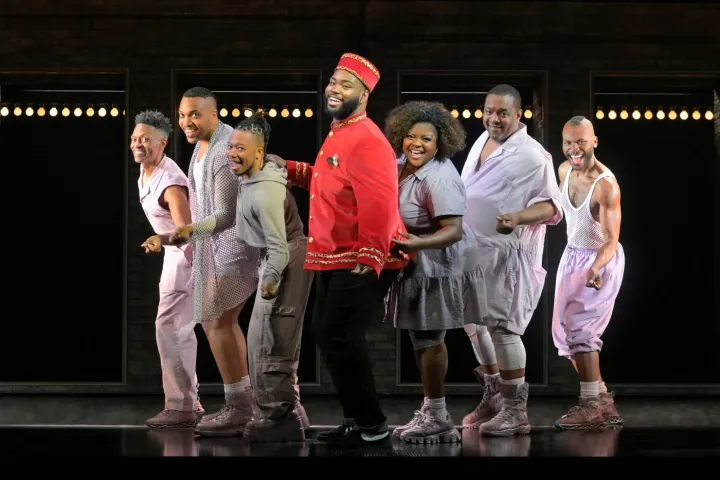May 25 – June 23, 2024 | Toni Rembe Theater
In This Program
- Show Program
- The Magical Musical Box
- Charting Growth: Lehman & America
- The Company
- Interview with Stephen Whitfield
- Print Edition
- More about A.C.T.
A.C.T’s House Rules of Play
Welcome to A.C.T., San Francisco. This is your theater.
All and any laughter is welcome. Laughter from many that can make a whole room shake. Laughter that is a beacon of any one person’s connection to the story told. And laughter that betrays nerves as a story builds tension. Please laugh and let others around you laugh. It is why we have come together.
We encourage all response. You, the audience, are part of the storytelling equation. Feel free to express yourself and let those around you express themselves. We are building a community with each performance.
Theater is alive and precious in that aliveness. The stories are honed and rehearsed and told with—not just to—you, the audience. If you miss a phrase or two, please know that the show will take care of you. It’ll come round again to catch you up and pull you forward. You can trust in the craft, so you can enjoy yourselves.
We ask that you turn off your mobile devices during the performance. This is out of respect for us all coming together to be part of a story told in this space and in living time.
Please share the fun. We ask that you save taking photos or video to before and after the performance and during intermission. We love seeing posts on social media: our programs held high among friends, floating before the set or curtain or lobby spaces. Tell folks about your experience. These shows have short runs and then are gone.
We encourage you to be present, mindful, and together in these spaces. Be kind to your neighbor and fellow theater lover. Help nurture and welcome new and young theater goers; for some this is their first time seeing a play. Give each other room, but also smile and say hello, as you pass on the way to your seats, or at intermission standing in a line, or as you walk out into your city.
Again, welcome to A.C.T. This is your theater.
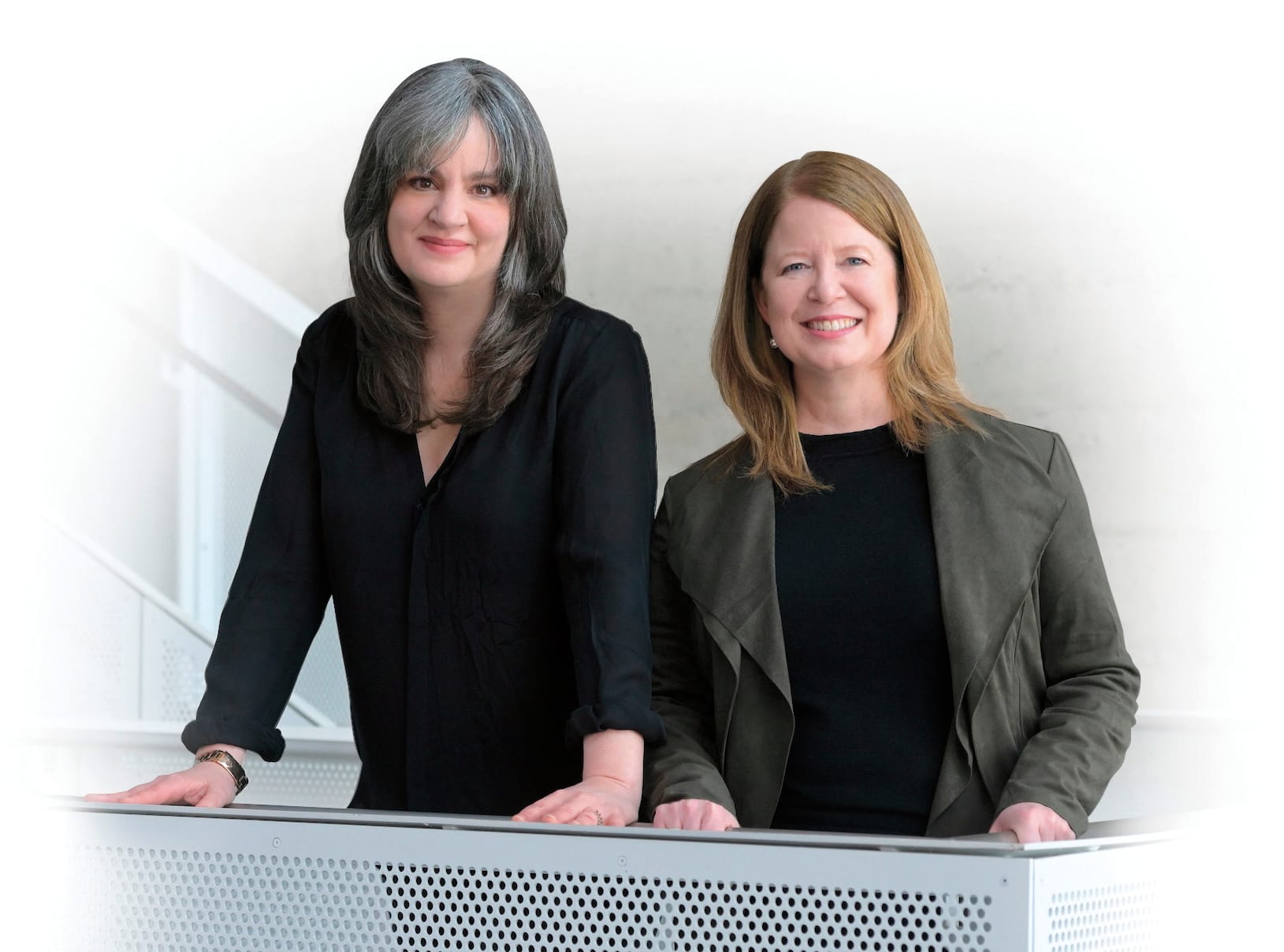
From the Artistic Director
A.C.T. has been in conversation about bringing Sam Mendes’s production of The Lehman Trilogy to San Francisco since early 2019. I was directing a play at the National Theatre. The Lehman Trilogy was newly running on the West End, and had yet to travel across the Atlantic. This all seems a lifetime ago. Here we are, finally, with cause to celebrate this splendid production, a work of art, which has in the intervening 5 1/2 years picked up many many awards, hopped the Atlantic a couple times, and now comes to us from across the Pacific!
The production you have before you is worth the wait. Thank you for your support and patience to see us through to today.
I am so taken by the remarkable synergy of Sam Mendes’s direction and Es Devlin’s set design, which you can read more about on page 12. This is at once a domestic and epic story about the inevitable flow of time and individual choices made that accumulate into consequence beyond imagination. And my experience of this production—and I hope yours too—is a constant delight of both the specific and granular of these performances and transitions and the epic nature of the physical world. I find it very exciting when two (or more) completely realized extremes are smashed together on stage to realize big story.
Frequent A.C.T. guest designer and multiple Tony Award winner David Zinn was recently asked by Playbill what work of his he would want in a time capsule. He spoke of The Wizard of Oz that he did at A.C.T. “with super-genius Sam Pinkleton last summer in San Francisco where the beautiful and the banal and the super queer and the funny and the sad were all present all the time, and combined a sense of history and grace and wit and community and required reinvention and boldness at every choice…it’s rare when all of one’s heart and guts gets to explode on stage, in all their colors.”
Rare to utter praise of The Lehman Trilogy and The Wizard of Oz in the same breath perhaps, but I believe their marriage of story and storytellers are comparable and beautifully represent to me what A.C.T. brings to life so brilliantly for the Bay. It’s how plays get lifted off the page that matters. How literature gets celebrated into something live to be shared among us.
Enjoy!
Pam MacKinnon
Artistic Director
From the Executive Director
What a season this has been. Starting with Hippest Trip – The Soul Train Musical and ending with this long-awaited production of The Lehman Trilogy.
It has been lovely to work in partnership with the National Theatre to bring this production to San Francisco and we are thrilled to share it with you. Next we will focus on the upcoming 2024/25 Season. This lineup embodies A.C.T.’s mission of activating stories that resonate and promoting a diversity of voices and points of view. It’s a season full of music, humor, and heart. We’re also excited to be bringing in The Acting Company to perform August Wilson’s Two Trains Running and Shakespeare’s The Comedy of Errors in repertory—hearkening back to the early days of A.C.T. as a repertory company. You can read more about all these upcoming shows on page 8, and learn all about the new season at act-sf.org. Please share with your friends, family, and colleagues as well!
We hope you will join us as a subscriber as it is the best way to be plugged in to all things A.C.T. and to support your theater! We depend upon the loyalty of subscribers and returning audience members to bring you excellent theater to inspire and provoke joy, laughter, conversation, reflection, and more.
This summer our Young Conservatory will create Carrie: the Musical, performed in August at the Strand Theater. This musical features a cast of phenomenally talented young actors, a score you won’t be able to stop humming—and an ending that will bring the house down. Learn more at act-sf.org/CSV-shows.
Thank you for choosing to join us today for The Lehman Trilogy. We hope you’ll check out more of what A.C.T. has to offer: classes and training for all ages through our Conservatory program (act-sf.org/training), space rentals for all sizes and needs (act-sf.org/rentals), behind-the-scenes benefits for our generous donors (act-sf.org/support), and more. This is your theater!
Best,
Jennifer Bielstein
Executive Director
The Lehman Trilogy
By Stefano Massini Adapted by Ben Power
CAST
John Heffernan
Henry Lehman
Aaron Krohn*
Mayer Lehman
Howard W. Overshown*
Emanuel Lehman
Principal Pianist
Rebekah Bruce
Director
Sam Mendes
Set Designer
Es Devlin
Costume Designer
Katrina Lindsay
Video Designer
Luke Halls
Lighting Designer
Jon Clark
Composer and Sound Designer
Nick Powell
Co-Sound Designer
Dominic Bilkey
Music Director
Candida Caldicot
Movement
Polly Bennett
Casting
Bryony Jarvis-Taylor and Naomi Downham
Supernumeraries Casting
Katie Craddock
West End Director
Zoé Ford Burnett
International Tour Director
Rory McGregor
Associate Video Designer
Zakk Hein
Associate Lighting Designer
Charlotte Burton
Dialect Coach
Charmian Hoare
Company Stage Manager
Marius Arnold-Clarke
Deputy Stage Manager
Sophia Dalton
Assistant Stage Manager
Ellie Leaver
Janitor & Understudy
Ravi Aujla
Understudy
Leighton Pugh
Understudy
Simon Victor
Alternate Pianist
Anyssa Neumann
*Member of Actors’ Equity Association, the union of professional actors and stage managers in the United States
National Theatre Productions
Jim Leaver
Production Manager
Kimberley Thomas
Head of Production and General Management
Emma Gaynor
Deputy Head of Production and General Management
Sophie Visscher-Lubinizki
Production Coordinator
Kirsten Buckmaster
Production Assistant
Mark Douet
Rehearsal Photography
A.C.T. Producing Team
Andy Chan Donald
Associate Artistic Director
Louisa Liska
Director of General Management & Opperations
Amy Dalba
General Manager
Martin Barron
Director of Production
Pemberley Productions
Doreen Sayegh
Producer and General Manager
Tim Smith
Producer and General Manager
Annie Shea Graney
Associate General Manager
Lead Supporters
Barbara Bass Bakar; Jerome L. and Thao N. Dodson; Ray and Dagmar Dolby Fund; Sakurako and William Fisher Family; Frannie Fleishhacker; Priscilla and Keith Geeslin; John & Marcia Goldman Foundation; Fred M. Levin in honor of Nancy Livingston Levin, The Shenson Foundation; Robina Riccitiello; Patti and Rusty Rueff; Kay Yun and Andre Neumann-Loreck; and one Anonymous supporter
Production Sponsors
COMPANY SPONSORS
Linda Jo Fitz; Jo S. Hurley; John Little and Heather Stallings Little; The Marymor Family Fund
EXECUTIVE PRODUCERS
Neil and Elsa Pering; Laura Posey and Aaron Goldsmid
PRODUCERS
Norman Abramson in memory of David Beery; Luba Kipnis and David Russel; Abby and Gene Schnair; Beverly and Loring Wyllie
ASSOCIATE PRODUCERS
Judy and David Anderson; Paul Angelo and Cindy Low; Helen and Roger Bohl; Linda Joanne Brown and Lauren K. Morlock; Clay Foundation - West; Lee and Carolyn Snowberg; Emmett and
Marion Stanton
BENEFACTORS
Steven and Karin Chase
Corporate Production Sponsor
Gilead Sciences
Additional Support from
Grants for the Arts
Koret Foundation
The Shubert Foundation
Official Hotel Partner
The Westin San Francisco
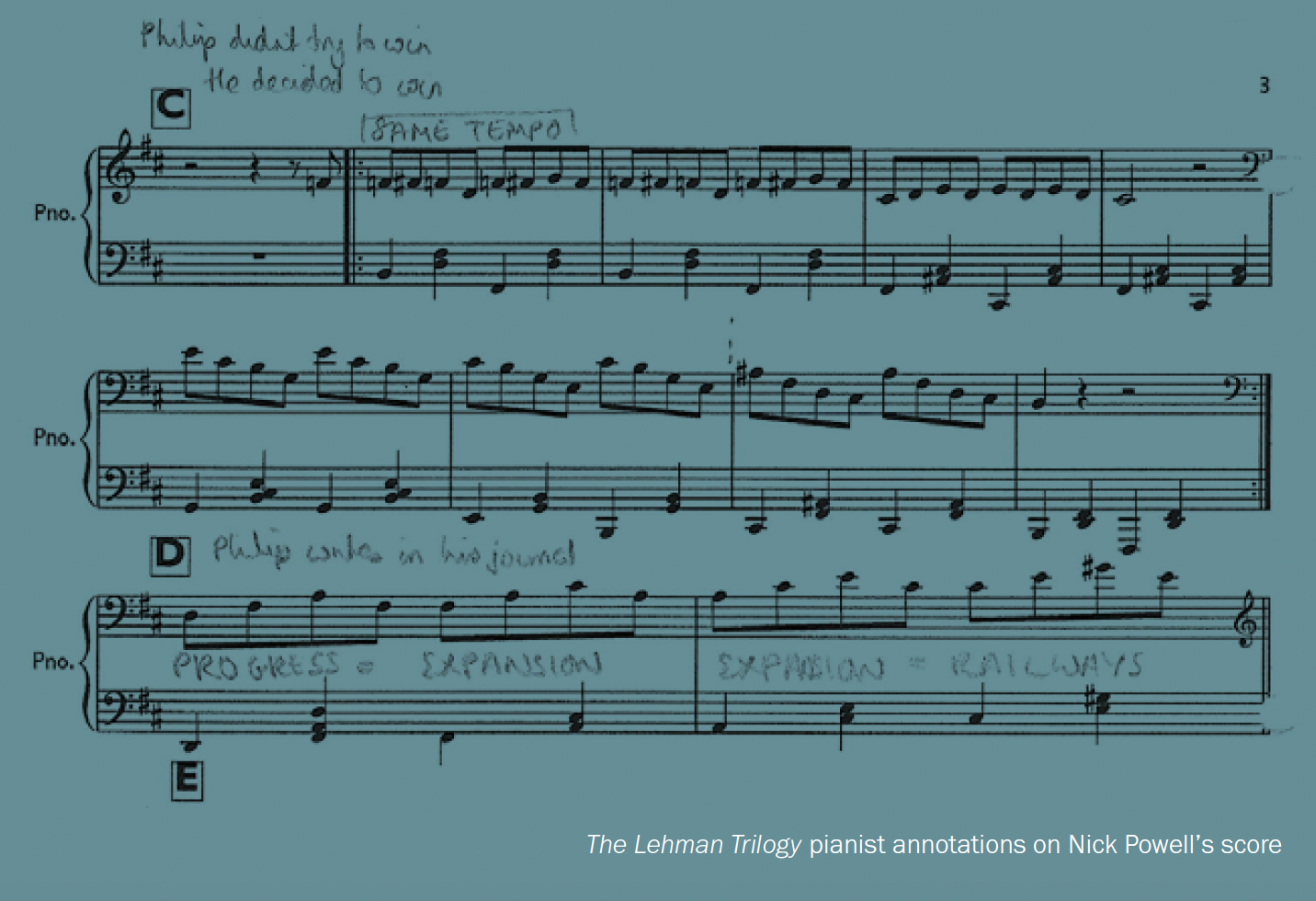
The Magical Musical Box
Sarah Hemming on the Fusion of Set Design and Music in the Lehman Trilogy
It starts, like so much of life, with a lullaby. As Henry Lehman steps onto the stage and into the empty office where his company will end 164 years later, the gentle sway of a popular Yiddish folk song ripples out from the piano. It’s a rendition of “Raisins and Almonds,” a Yiddish lullaby popularised in a version by Abraham Goldfaden— the sort of melody that this Jewish immigrant might have heard back in his native Bavaria, as he was rocked on his mother’s knee.
It’s also completely at odds with the glass and steel box in which he stands: we’re hearing where the company started; we’re seeing where it ends. And that brilliant tension instantly announces the crucial role the music and the design will play in Sam Mendes’ pared down production and in answering the question that hovers behind it: “How did we get here?”
The Lehman brothers’ story is an epic saga, beginning in 1844 with a tiny cotton store in Montgomery, Alabama and ending in a global concern that came crashing down in 2008, bringing the world’s economy to the brink of collapse. Engrained in it is the growth of capitalism and of modern America. So it’s very easy to imagine an entirely different staging—one with a cast of dozens, an elaborate design, masses of period detail and a huge orchestra. “Previous productions [of Stefano Massini’s original Lehman Trilogy] have lasted five hours and featured large casts,” says Es Devlin, the set designer.
But Mendes and his team wanted not just to depict what happened but to embed that story of invention, collapse and rebirth into the very texture of the show. Resourcefulness and ingenuity are at the heart of the Lehman brothers’ story—here those qualities also become defining principles for the production.
The three actors play all the characters, using the tiniest of gestures to transform into a 19th-century southern belle or an ancient Rabbi. The set becomes their playground: a jug of water plays a liquor bottle; a marker pen becomes a paintbrush—the very paraphernalia that will be present at the company’s demise are used to illustrate the journey towards that point. It’s playful, but pertinent: belief, so important in the story, also becomes central to the show; the audience is invited into the game of invention.
“The brothers improvise the whole time,” says Nick Powell, the composer and co-sound designer. “They take difficult situations and turn them round by improvising—and that’s what we all do in theatre. So it’s really enjoyable to see those minimal solutions: to see what’s the most story you can tell with the tiniest gesture. That’s the essence of it.”
For Powell and Devlin, that meant making the music and the design an integral part of the storytelling. Henry Lehman’s early description of America as a “magical musical box” became key to their thinking. Devlin recalls an early design meeting with Mendes.
“Sam took a black marker and a large sheet of card and wrote down five precepts,” she says. “They formed the basis of our design process:
- Animate the idea
- Make concrete the shape of history
- Understand the order present in chaos
- Understand it in your head... because you can feel it in your gut
- Reveal the simple human needs behind the creation of complex human systems”
It took time, however, to work those precepts into a physical set. “We explored a range of visual languages,” says Devlin. “One version was entirely formed of cardboard boxes, another was a very wide naturalistic board room.”
One idea was to have a real-life tight-rope walker on a rope over the audience. “Much discussion was had about the length of his pole, and what would happen if he were to drop it...”
But he, like so much else, was refined to a symbolic presence as the company distilled ideas down to the essence. The set’s ultimate form and the idea to make it kinetic arrived during a trip to New York. Devlin and Mendes were visiting the theatre where the show would make its American debut.
“The breakthrough in the design process came when Sam and I visited the Park Avenue Armory,” recalls Devlin. “Standing in that vast volume of enclosed New York air, the boardroom began to rotate, almost of its own accord, in both of our imaginations. Once the room was revolving, the show became a movie, a continuous reel. The mechanical music box that Henry Lehman describes when first arriving in New York had been set in motion.”
By placing the entire story in that rotating boardroom, the company was able to retain a very disciplined visual vocabulary and foreground the actors. Meanwhile, the colour palette is strict—fusing the monochrome austerity of a modern office with the black and white of old photographs.
But perhaps the most potent detail of the set design is the inclusion of those cardboard boxes that became so synonymous with the crash of Lehman Brothers. There’s something poignant and unsettling about watching the brothers build their business using boxes just like those in which employees would remove their belongings when the company collapsed.
“The cardboard boxes from our earliest designs remained an important part of the vocabulary,” says Devlin. “And it became clear that the more we invested them with meaning and metaphor, the more poignant the revelation that those containers of cotton, coffee and coal ultimately became containers of digits, dreams and nothing.”
The repeated use of the boxes and the constant presence of the three brothers help to trace that extraordinary story from nothing back to nothing, says Powell. “Their presence all the way through shows how you end up with these monstrous inhuman systems through a very large number of very human choices. You arrive at those things gradually.”
That incremental journey is also reflected in the music: “The shifts in the music also happen very gradually,” Powell says. “It’s bookended by that traditional Yiddish song from the mid-19th century. I thought that little melodic motif should be a memory of where they’ve come from, but the rest of the music should all be pointing forward and taking us through the time frame. “So it starts off quite simple, then in Act 2 becomes playful and vaudevillian, which felt right for the first part of the 20th century. In Act 3 it gets more hallucinatory and insane as the financial system builds and becomes something quite abstract: that’s when we start to treat the piano and put it through effects. It’s meant to feel like it’s careering out of control. And then, at the end, we go straight back to ‘Raisins and Almonds’, which is where we started the show.
“I really love that moment because it feels like a world apart—and yet it’s just been this pianist playing the whole time. I think musically that illustrates the fact that it’s a series of small decisions that end up compounding to make a big shift.”
Powell composed the score live, improvising at a piano in the rehearsal room and responding moment by moment as the production took shape, before solidifying the score with the original pianist and now musical director Candida Caldicot. One notable feature of the text, he points out, is its use of rhythm, repetition and refrain.
“The whole structure of the play is incredibly musical,” he says. “Each section is very much like song structure: there are lots of recurring phrases in the text and each section has verses and choruses. So it was important for me too to find various leitmotifs in the music that we could keep going back to.”
Musical phrases recur with slight variations as the story unfolds. Magical arpeggios evoke the musical box; restless staccato running notes accompany the growing business; a playful waltz underpins the mention of the tight-rope walker. But as with everything in the production, the music is distilled—it’s about finding the flavour or essence of ragtime or vaudeville, rather than writing pastiche, says Powell. At moments of crisis—the Civil War, the 1929 Wall Street Crash—the music “empties out” to be replaced by minimal, evocative sound effects (also designed by Powell, with cosound designer, Dominic Bilkey).
“After the cataclysms, there’s a repeated motif that comes in, which is just a round of piano chords,” he says. “And they just mark time: you get a chord every bar. They felt to me like—there’s the sort of melancholy of the aftermath of an event that has shifted everything. And it happens several times—they’re building, building, building and then something happens, they’re in the rubble and there’s a sense of, ‘What was that?’ And then they start building again.”
Significantly, the entire score is delivered by a solo female pianist at the edge of the stage. That’s a reference to silent movie pianists which “feels really appropriate,” Powell says. But there’s also the gentle hint that she could on some level represent someone from the brothers’ past: “Is that their mother? Is that their teacher?”
She’s part of the action but also an anchor: like the repeated lullaby, another subtle reminder of where this epic story started and how far it travels.
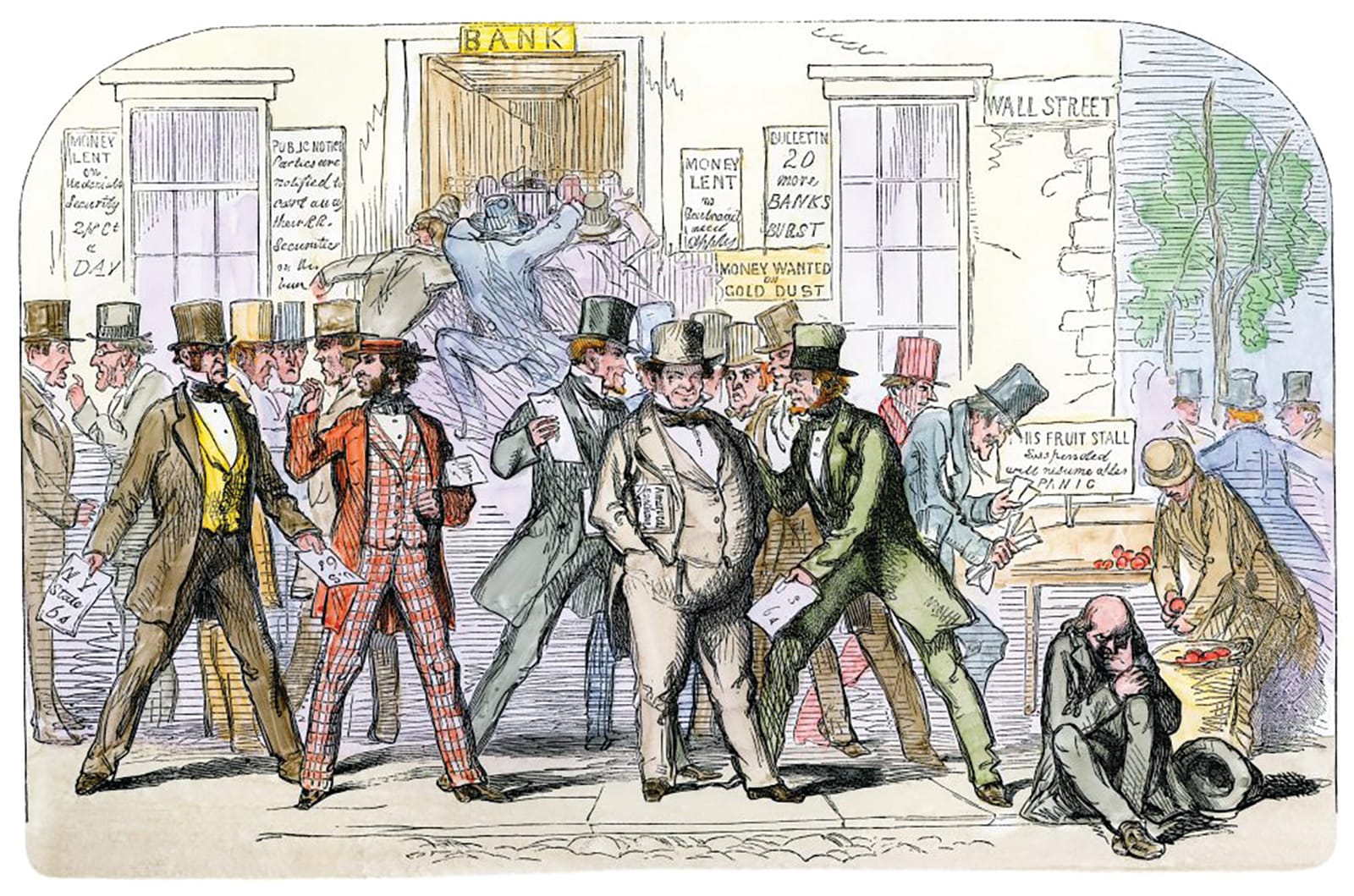
Charting Growth
Lehman & America
1844
Hayum Lehmann, the son of a cattle merchant, arrives in New York from Rimpar, Bavaria. He becomes Henry Lehman, settles in Montgomery, Alabama, and opens a general store.
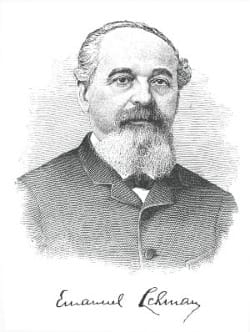
1847
Mendel Lehmann arrives in the US from Germany to join his brother. He becomes Emanuel Lehman.
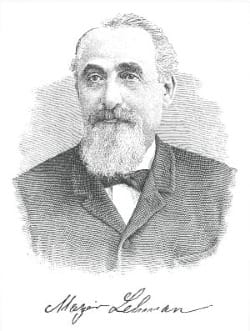
1850
Mayer Lehman arrives and the firm becomes ‘Lehman Brothers’.
1854
The firm begins buying and reselling raw cotton.
1855
Henry Lehman dies from yellow fever.
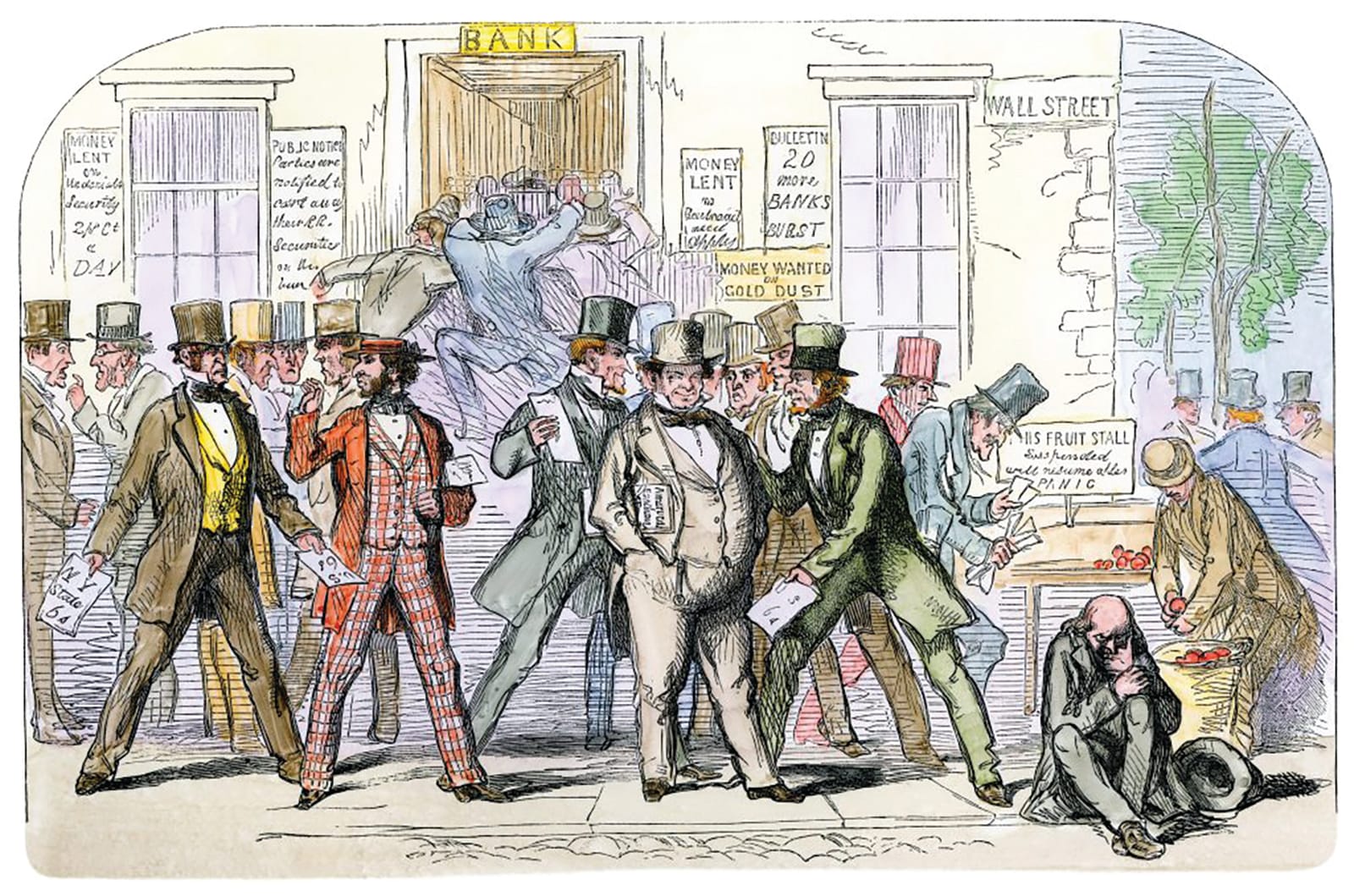
1857
The Panic of 1857: a financial downturn caused by the declining international economy and over-expansion of the domestic economy.
1860
Lehman Brothers opens an office at 119 Liberty Street, New York. South Carolina secedes from the Union, and is soon followed by the ten other pro-slavery states that make up the Confederacy.
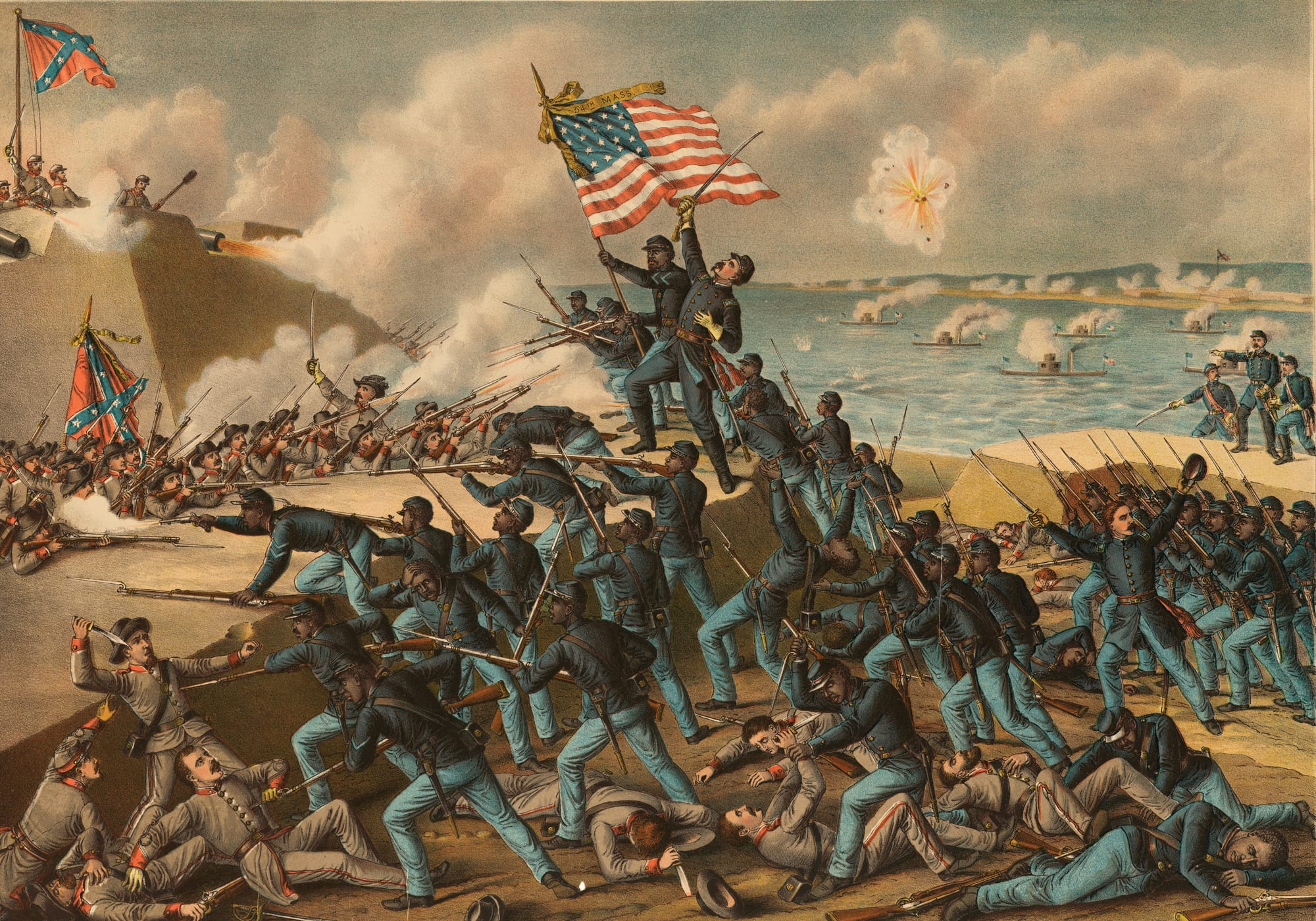
1861
The American Civil War begins.
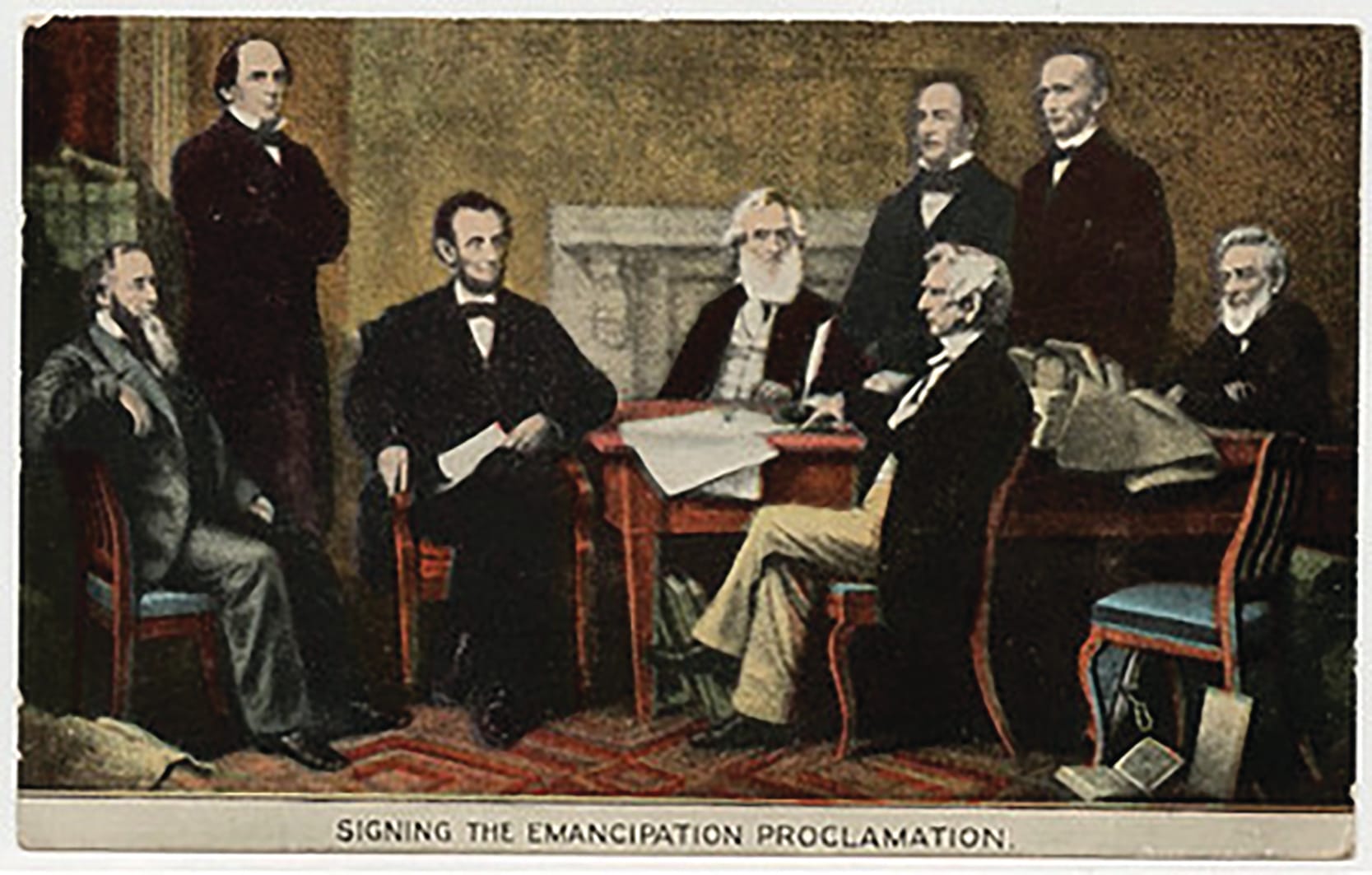
1863
President Lincoln issues the Emancipation Proclamation, which declares “that all persons held as slaves” within the seceded states “are, and henceforward shall be free.” The Civil War continues for another two years.
1865
June 19. 250,000 enslaved people in the state of Texas – the last bastion for slavery during the final days of the Civil War – are declared free by the US Army.
1867
Lehman Brothers acquires state funds and becomes a bank, aiding the state of Alabama in the Reconstruction period. Emanuel Lehman helps to found the New York Cotton Exchange.
1869
Lehman Brothers spreads its activities from agricultural businesses to those based on industry.
1869
The First Transcontinental Railroad is completed.
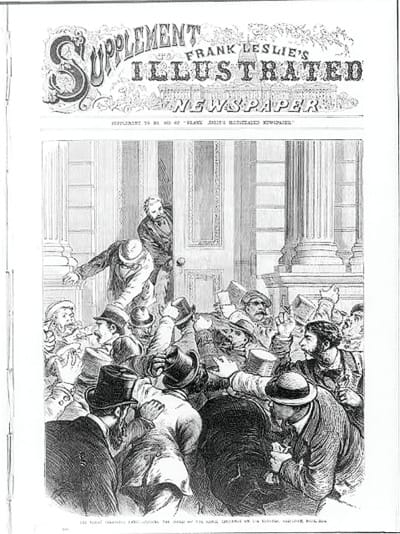
1873
The Panic of 1873: stock markets collapse, and the New York Stock Exchange is closed for ten days.
1880
Lehman Brothers joins the coffee exchange.
1883
The Brooklyn Bridge opens in New York.
1884
Lehman Brothers invests in the railways.
1887
Lehman Brothers becomes a member of the New York Stock Exchange. Emanuel’s son, Philip Lehman, becomes a partner in the firm.
1897
Mayer Lehman dies.
1907
Emanuel Lehman dies.
1908
Mayer’s son, Herbert Lehman, becomes a partner in the firm.
1913
The US central bank, the Federal Reserve, is established.
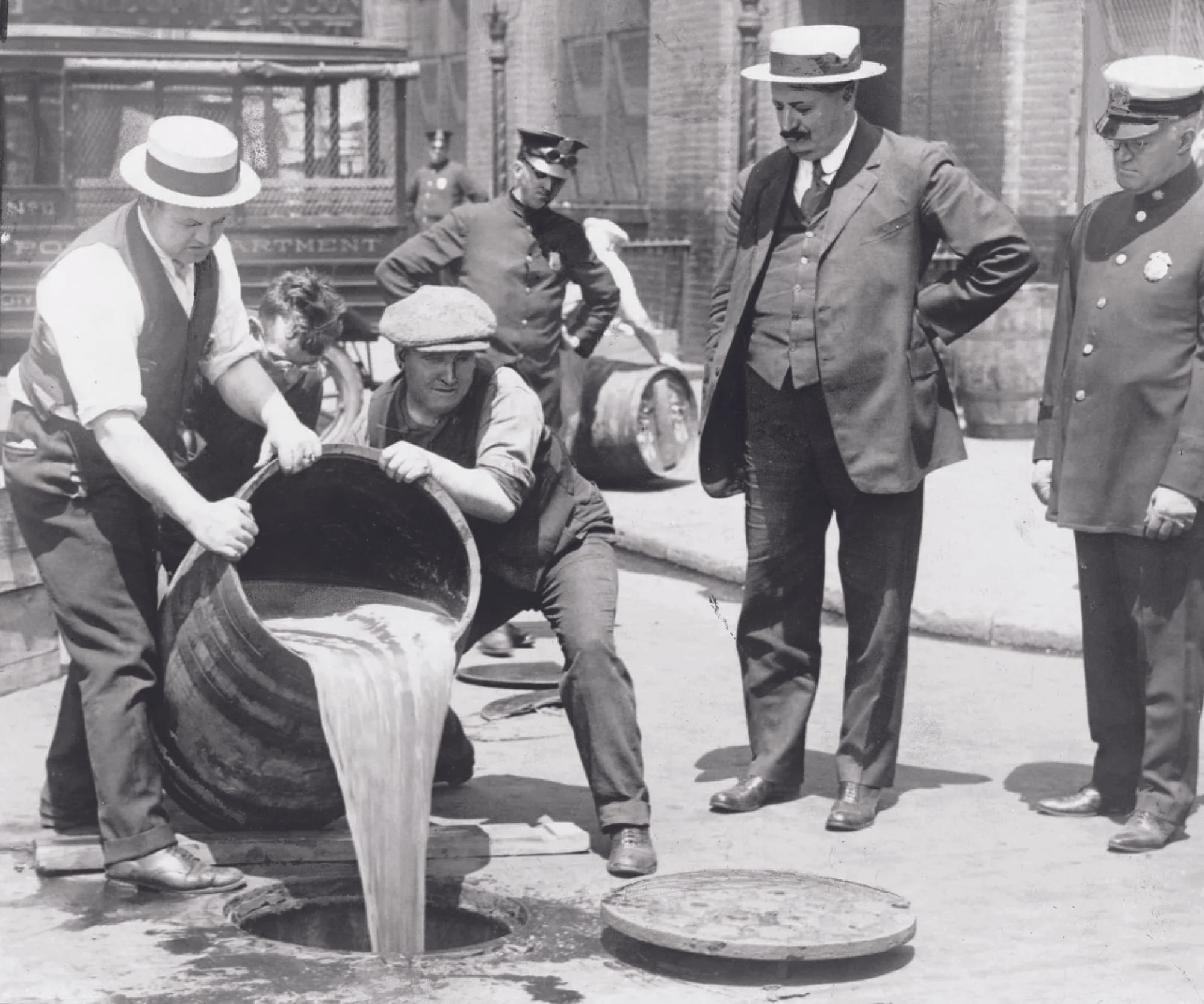
1917
Prohibition begins, and the US enters World War I.
1919
The Treaty of Versailles follows the end of World War I.
1920
Women in the US gain the right to vote.
1925
Philip’s son, Robert (Bobbie) Lehman, becomes a partner in the firm, backing emerging industries geared towards mass consumption, such as airlines, motion pictures and cigarettes.
1928
Herbert Lehman leaves business and is elected lieutenant governor of New York, working closely with then-governor Franklin D Roosevelt.
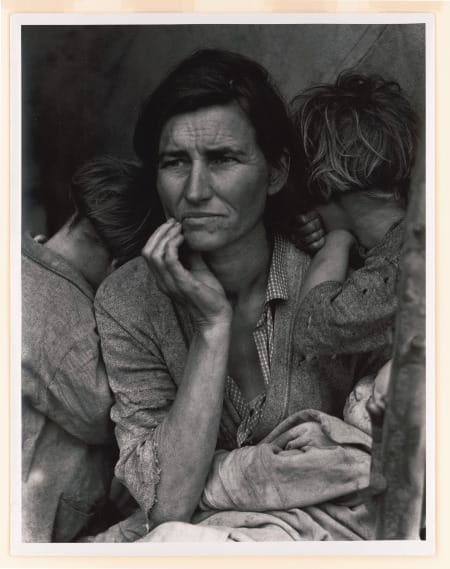
1929
The Lehman Corporation, an investment company, is created.
The Wall Street Crash, followed by the Great Depression; 13 million people become unemployed.
1932
Herbert Lehman is elected governor of New York and serves four terms, from 1933 to 1942.
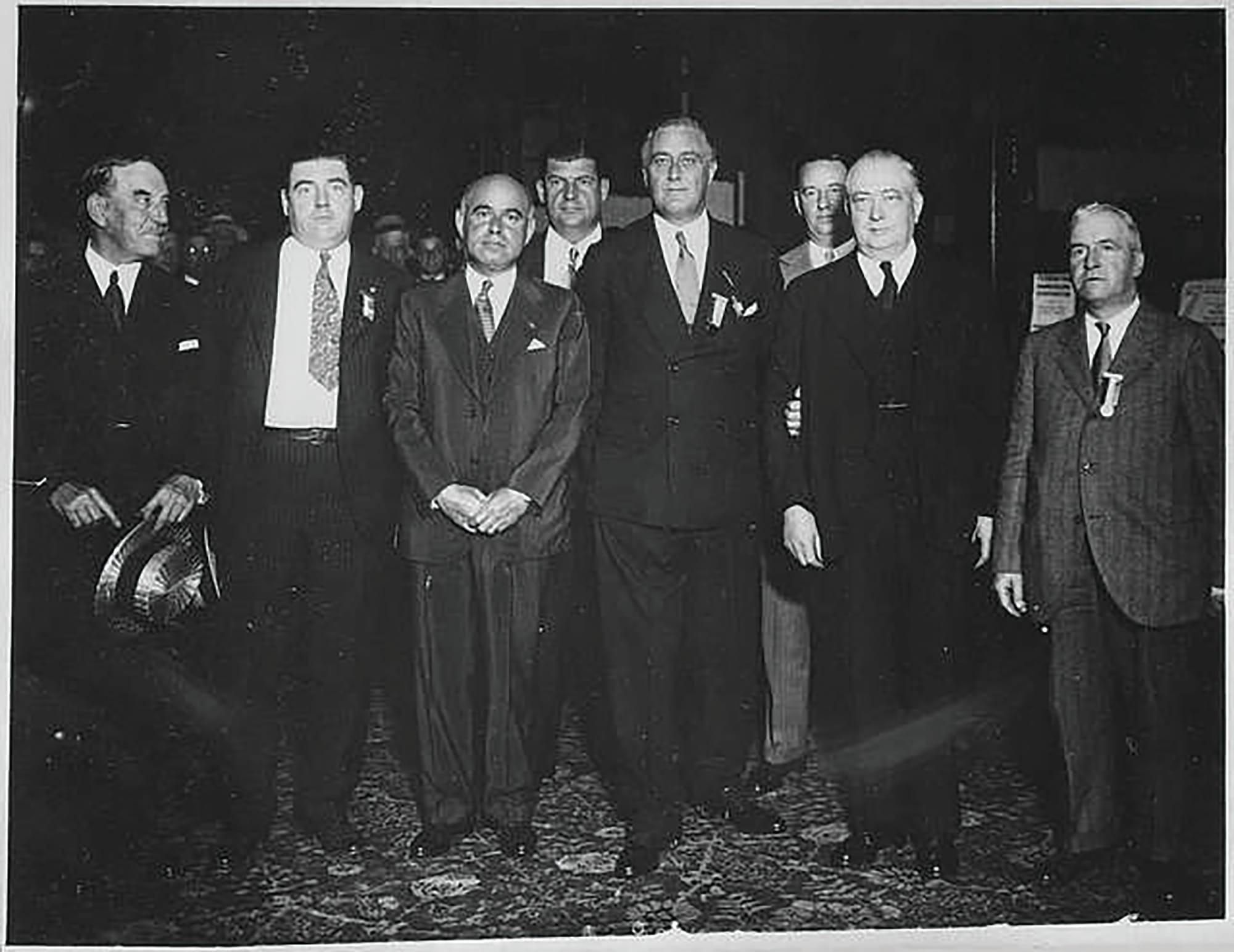
1933
Franklin D Roosevelt is inaugurated and initiates New Deal programme, supported by Herbert Lehman. Sale of alcohol resumes.
1941
Japanese warplanes attack US fleet at Pearl Harbor in Hawaii. US enters World War II.
1945
Atomic bombs dropped on Hiroshima and Nagasaki. Japan surrenders, marking the end of World War II.
1947
Philip Lehman dies.
1962
Cuban Missile Crisis.
1963
Herbert Lehman dies.
1965
Bobbie Lehman sets up a trading department at Lehman Brothers. He puts Lewis Glucksman in charge.
1965
Bombing of North Vietnam begins; US combat troops are sent in to Vietnam.
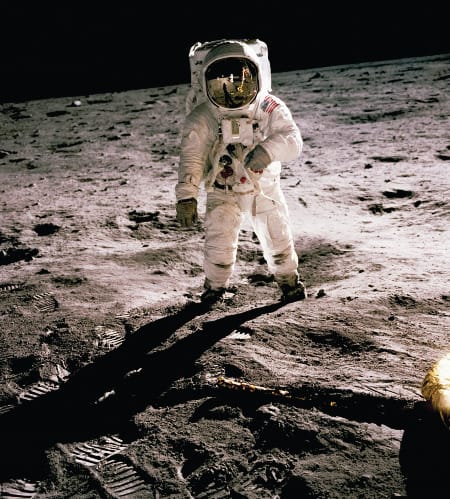
1969
Bobbie Lehman dies. He is the last of the Lehman family to lead the bank.
First Moon landing.
1974
President Richard M Nixon resigns amid the Watergate scandal.
1984
Lehman Brothers is acquired by American Express.
1990-1991
Gulf Wars – the US leads coalition forces in combat in response to Iraq’s annexation of Kuwait.
1994
American Express spins off Lehman Brothers, which once again becomes independent.
2001
Lehman Brothers’ World Trade Center offices are destroyed by terrorist attacks.
2002
Lehman moves to its new global headquarters in midtown Manhattan.
2003
Missile attacks on Baghdad mark the start of a US-led campaign to topple the Iraqi leader Saddam Hussein.
2007
Lehman Brothers entangled in the subprime mortgage lending crisis.
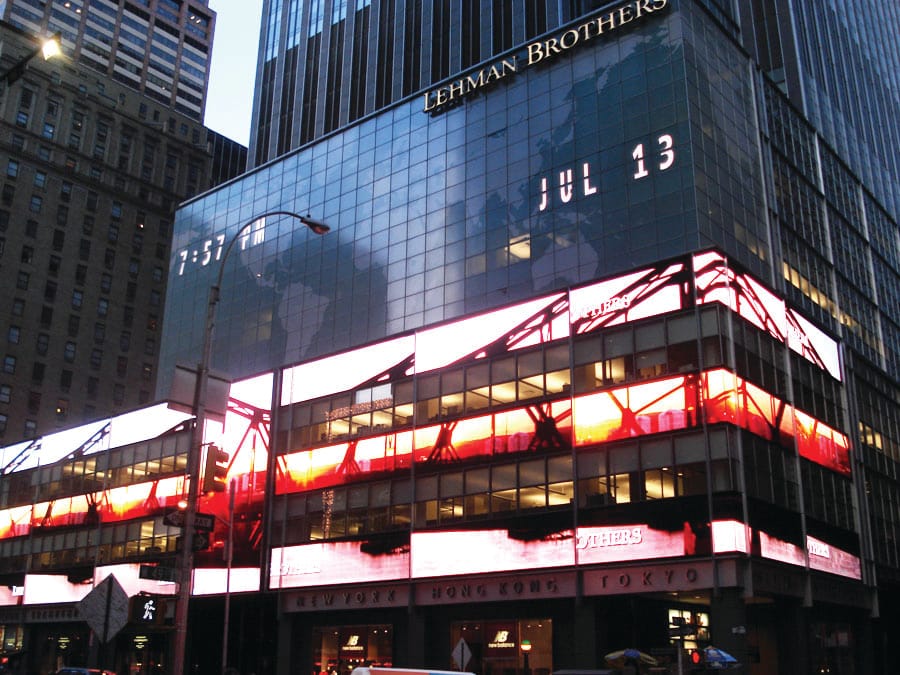
2008
Lehman Brothers Holdings Inc. files a Chapter 11 bankruptcy petition.
2008
With hundreds of billions of dollars wiped out in bad loans and a prolonged property slump, the US faces its worst financial crisis since the Great Depression.
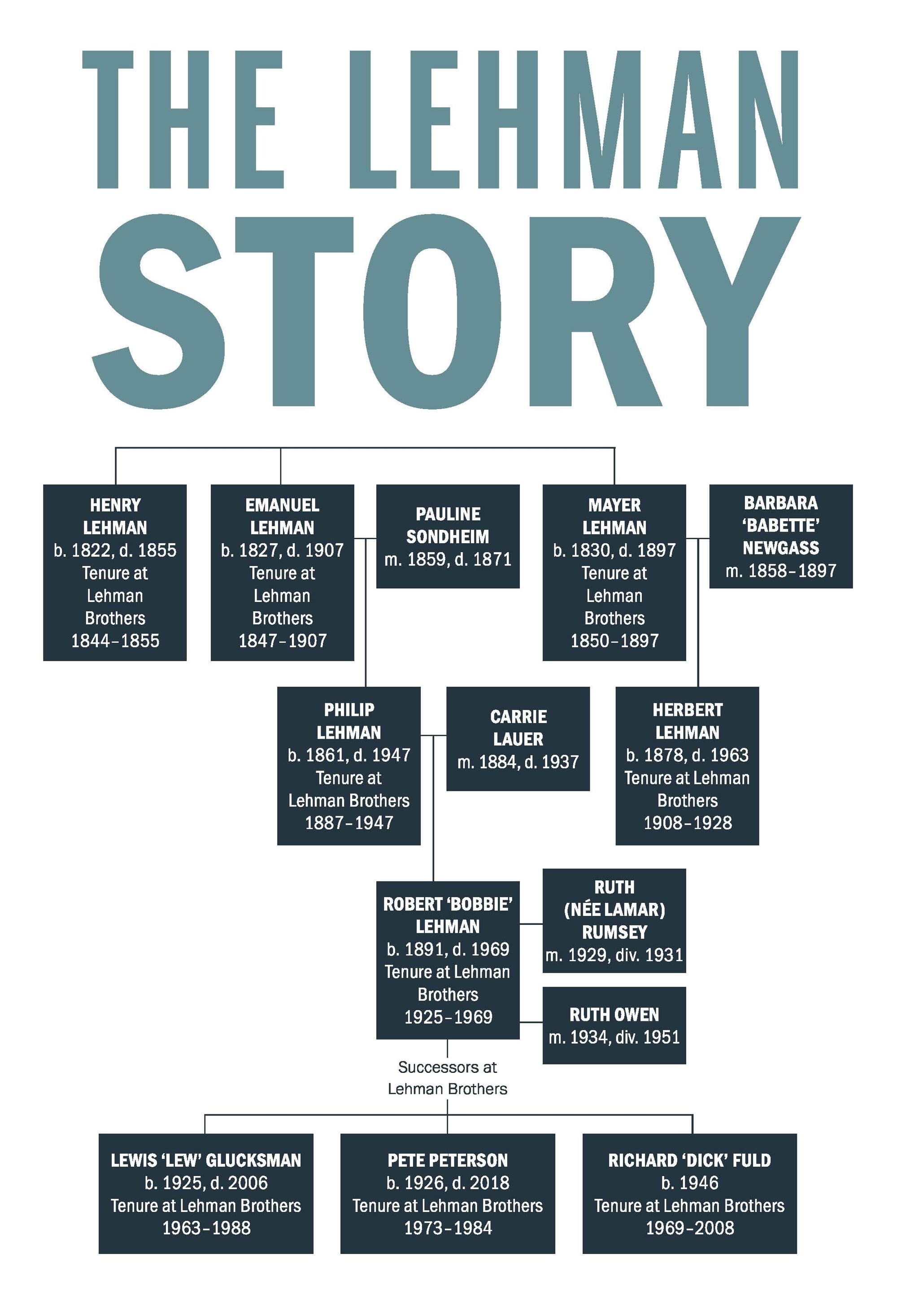
The Company
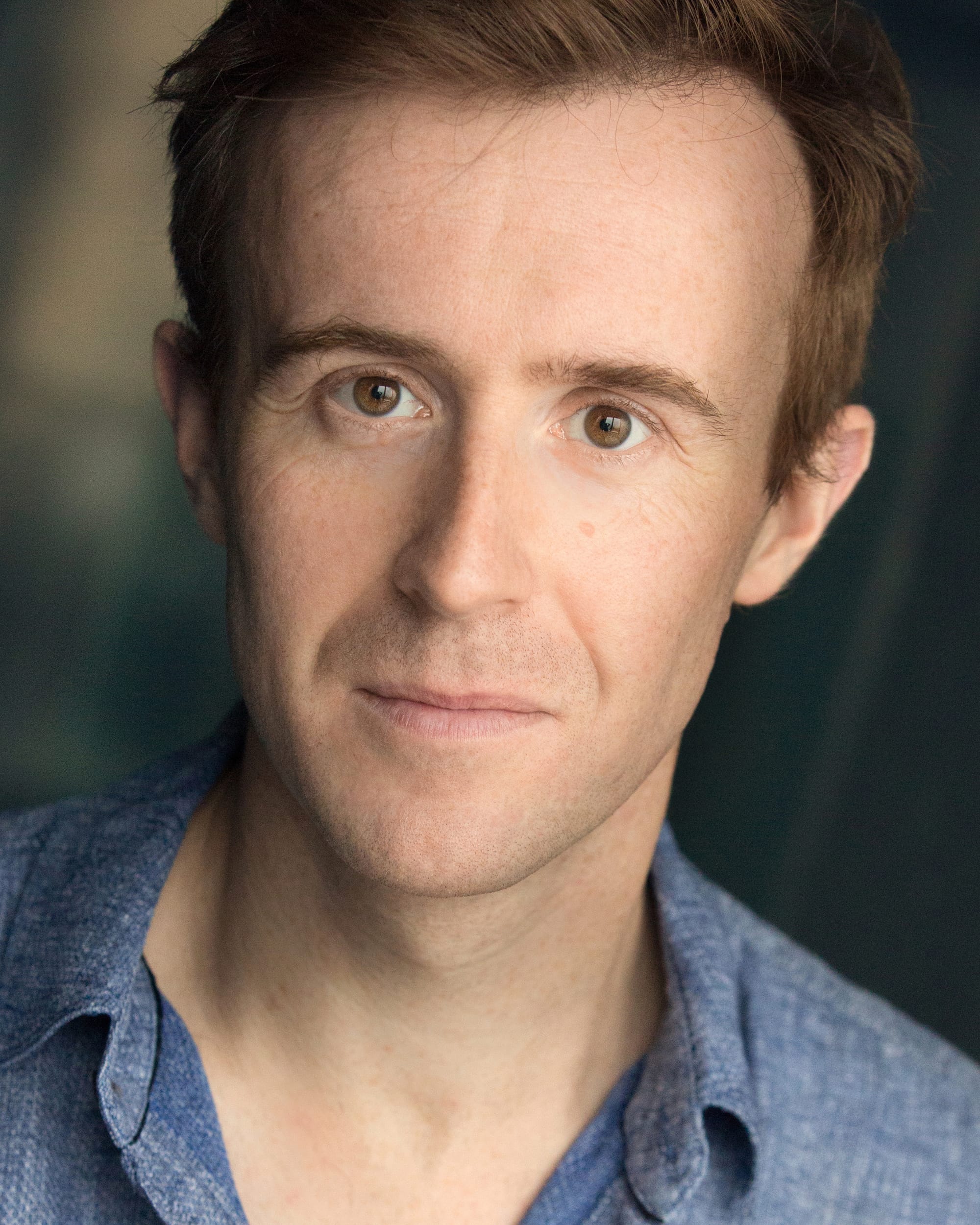
JOHN HEFFERNAN’s (Henry Lehman) work in theatre includes Much Ado About Nothing, Saint George and the Dragon, Edward II (Evening Standard Theatre Award nomination for Best Actor) and She Stoops to Conquer at the National Theatre; Oppenheimer for the RSC; Nachtland and Macbeth at the Young Vic; Love and Information at the Royal Court; A Slight Ache at Harold Pinter; and The Hothouse at Trafalgar Studios. TV includes A Gentleman in Moscow, This Town, Becoming Elizabeth, The Pursuit of Love, Dracula, Brexit – The Uncivil War, Collateral and The Crown. Film includes The Duke, The Banishing, Misbehaviour and Official Secrets.
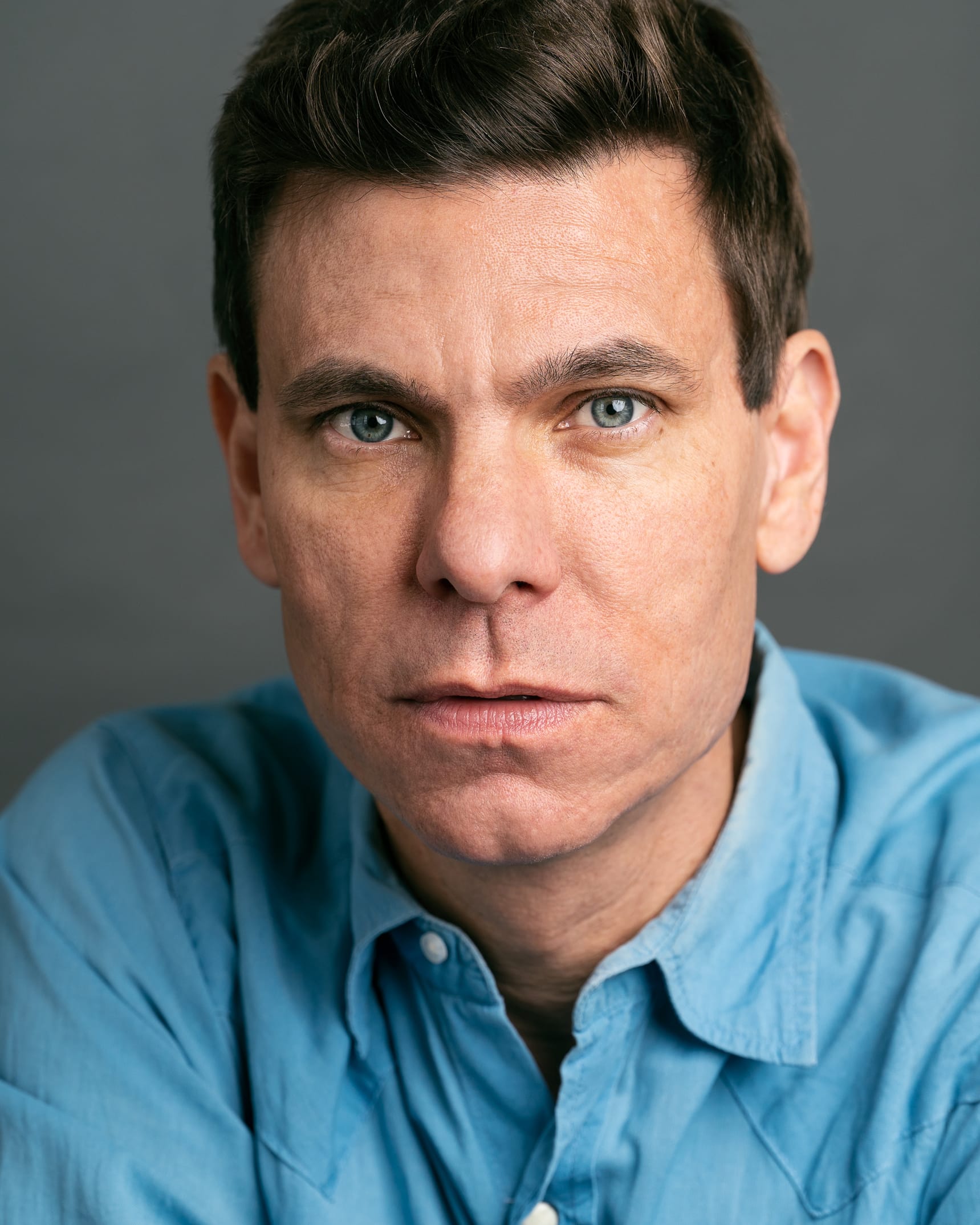
AARON KROHN* (Mayer Lehman) has a Master of Fine Arts from The Old Globe. His work in theatre includes The Lehman Trilogy, The Height of the Storm, Summer, Cabaret, Macbeth, The Farnsworth Invention, The Coast of Utopia, Julius Caesar, Henry IV and The Invention of Love on Broadway; Spamalot, The Homecoming, Twelfth Night and Henry V at Stratford Shakespeare Festival; As You Like It, The Tempest, The Winter’s Tale and The Cherry Orchard for the Bridge Project; Coriolanus at the Red Bull; Clive for the New Group; The Glass Cage and Echoes of the War for Mint Theatre Company; Philoktetes for La MaMa; and multiple productions at The Ahmanson, La Jolla Playhouse, Folger Shakespeare Theatre, Westport Country Playhouse, Hartford Stage, TUTS, Alabama Shakespeare Festival, The Old Globe and The Alley Theatre. TV includes Fosse/Verdon, I Love You But I Lied, Boardwalk Empire, Law & Order: SVU and Welcome to New York. Recordings with his band, Notes from Underground, include an EP - Rock, Pity and Brevity. Aaron Krohn has been a teaching artist for New York’s Epic Theatre Ensemble since 2001.
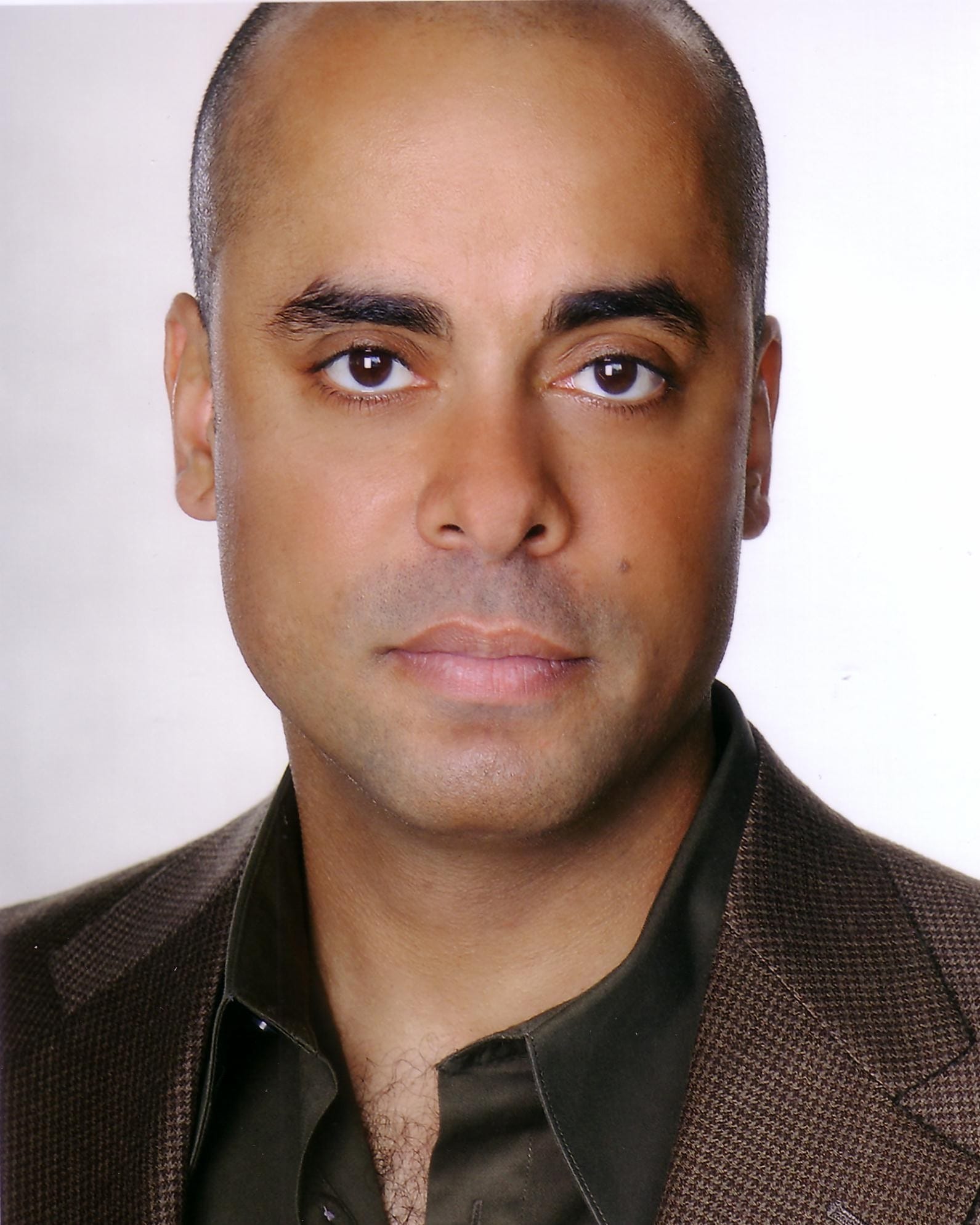
HOWARD W. OVERSHOWN’S* (Emanuel Lehman) work in theatre includes The Lehman Trilogy at the Ahmanson, Los Angeles; Richard III on international tour; A Soldier’s Play, US Tour; The Tempest at the Hudson Valley Shakespeare Festival; Much Ado About Nothing, King John, Hamlet and Richard III at the Folger, Washington; The Great White Hope and Passion Play at Arena Stage; Clybourne Park for Pioneer Theatre Company; A Trip to Bountiful at the Cleveland Play House; Radio Golf at the Stiemke Studio, Milwaukee; Death of a Salesman at Yale Rep; Art at Two River; The Christians and Rosencrantz and Guildenstern Are Dead at Center Stage, Baltimore; Beauty on the Vine, Blue, YellowMan, Passage, Never The Sinner and Orlando off-Broadway; and A Soldier’s Play, Julius Caesar, Saint Joan, A View From the Bridge and Free Man of Color on Broadway. TV includes The Marvelous Mrs. Maisel, Girls5eva, Blue Bloods, The Affair, Law & Order: SVU, Law & Order: Criminal Intent, Madame Secretary, Fosse/Verdon, Bull, Kings, White Collar, Unforgettable and Allegiance. Film includes Pride and Glory, Body of Lies, 13, Never Here, Grand Street and Lost Cat Corona. Howard W. Overshown was awarded the Ten Chimneys Fellowship in 2018.
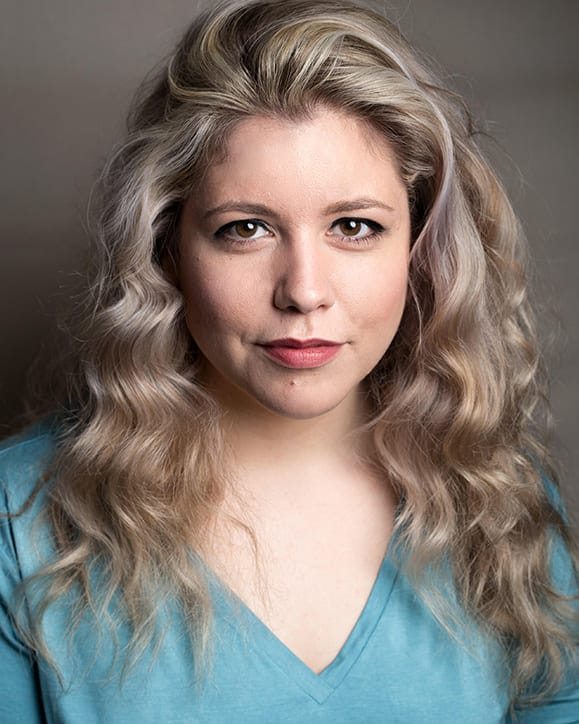
REBEKAH BRUCE (Pianist) is a conductor, pianist and vocal coach. Her work in theatre includes The Lehman Trilogy (on Broadway, in Los Angeles and Sydney), Dead Outlaw, Here We Are, White Girl in Danger, A Strange Loop, Company, Mean Girls and numerous Broadway and Off-Broadway productions and concerts. Rebekah Bruce served on the music faculty at Oklahoma City University’s Bass School of Music and as Vocal Director at Celebrity Cruises Entertainment. She performs and teaches across the United States, and runs a private voice studio in New York City, coaching musical theater and opera.
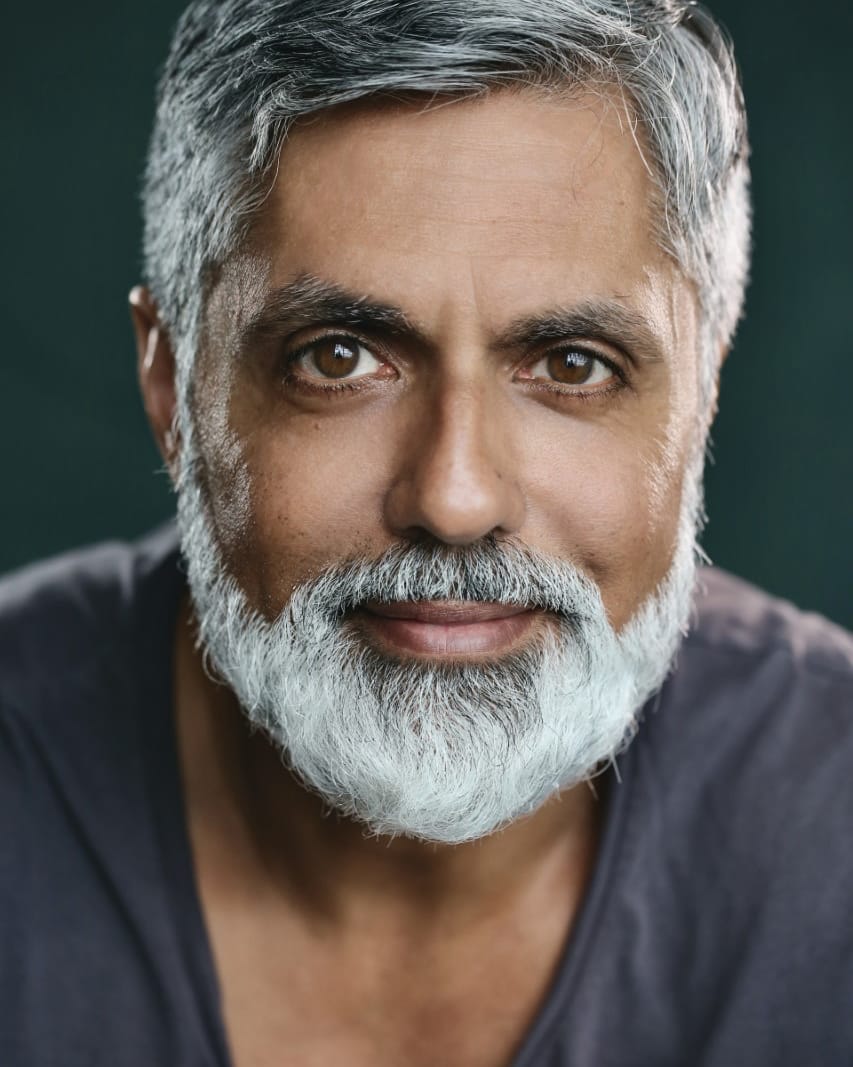
RAVI AUJLA’s (Janitor, U/S Emanuel Lehman) work in theatre includes What the Butler Saw for Leicester Curve and Theatre Royal Bath; The Tempest at Hippodrome Circus; The Three Lions at the St James, on tour and at The Pleasance, Edinburgh; The Westbridge and Free Outgoing at the Royal Court; As You Like It at the Rose, Kingston; Commercial Road at Hackney Empire; Antony and Cleopatra, The Tempest, and Julius Caesar at the RSC and in the West End; Midnight’s Children at the RSC, the Barbican, and Harlem Apollo; Unsuitable Girls at Leicester Haymarket and Lyric Hammersmith; Magic Box and Colour of Justice (also National Theatre) at Tricycle; River on Fire at Lyric; A Midsummer Night’s Dream for Shakespeare Link; Wicked Yaar at the National Theatre; Untouchable for Tamasha and Riverside; and The Mousetrap, The Lehman Trilogy (also Park Avenue Armory), The Kite Runner (also tour) and Indian Ink in the West End. TV includes Slow Horses, House of the Dragon, The Nevers, Get Even, Flowers, HG Wells, Killing Jesus, Casualty, Silent Witness, Doctors, EastEnders, Sadie Jones, Eldorado, Coronation Street, The Bill, Shelley, Peak Practice, Capital City, Family Pride, and Family Affairs. Film includes Kandahar, Sisi and I, What’s Love Got to Do With It?, The Eternals, Accident Man, Phantom, Common People, Will, I’ll Be There, Jinnah, and London.
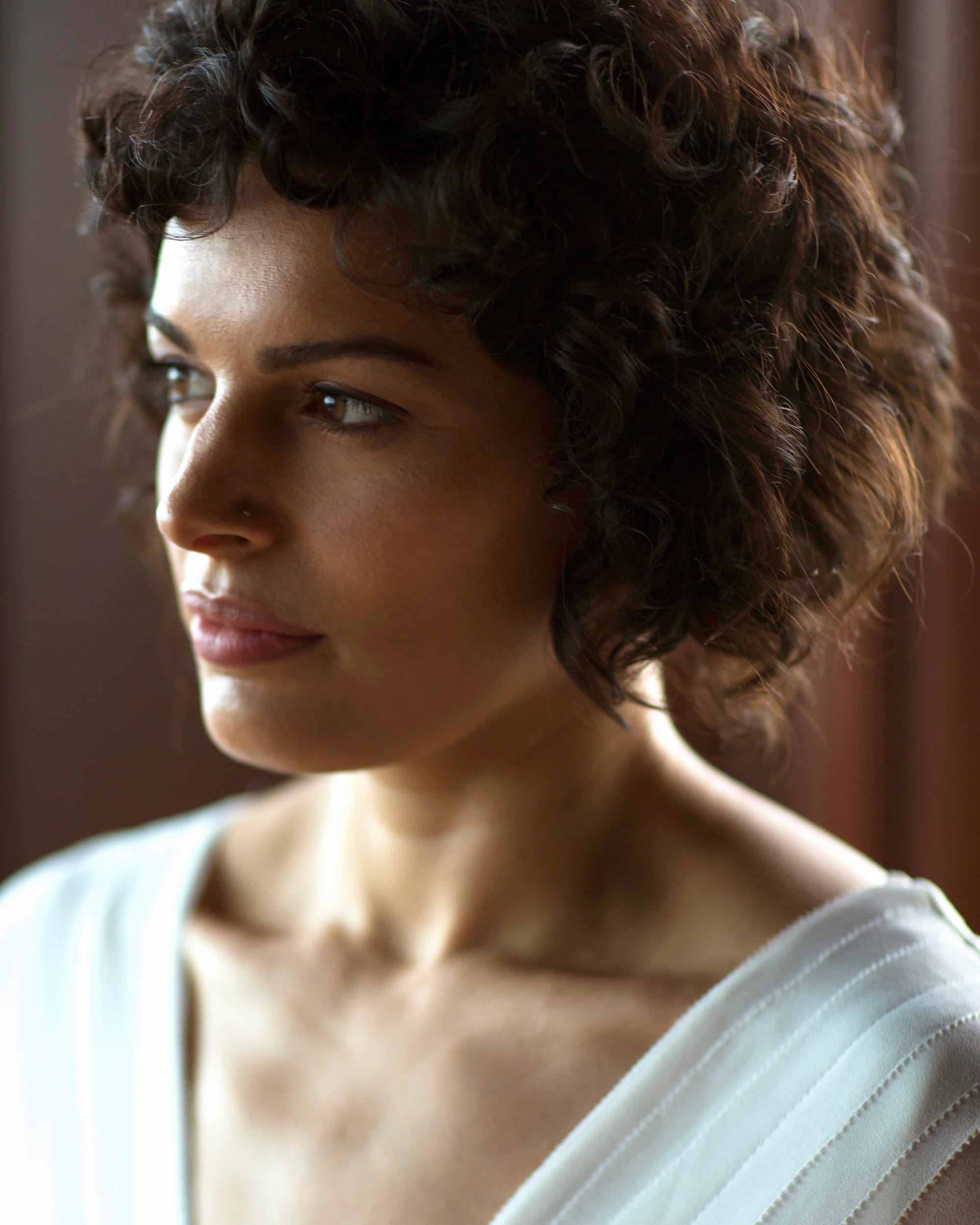
ANYSSA NEUMANN (U/S Pianist) studied at the Manhattan School of Music, University of Oxford, Université de Montréal and King’s College London, where she earned a PhD in musicology in 2017, focusing on music in the films of Ingmar Bergman. In 2023, she completed a post-doctoral research position at Uppsala University. Anyssa Neumann is a concert pianist and academic and has performed internationally at venues and events such as St Martin-in-the-Fields, St James Piccadilly, Holywell Room, Mazzoleni Hall, Uppsala Cathedral, the Helsingborg Classical Music Festival and the Sacramento Bach Festival. Recent performances include Liszt’s Piano Concerto No. 1 with orchestras in California and Sweden; Bach’s Goldberg Variations in the UK, Sweden and Norway; and recitals in Rome, London, San Francisco, Los Angeles and the Pacific Northwest. The Lehman Trilogy is Anyssa Neumann’s professional theatre debut.
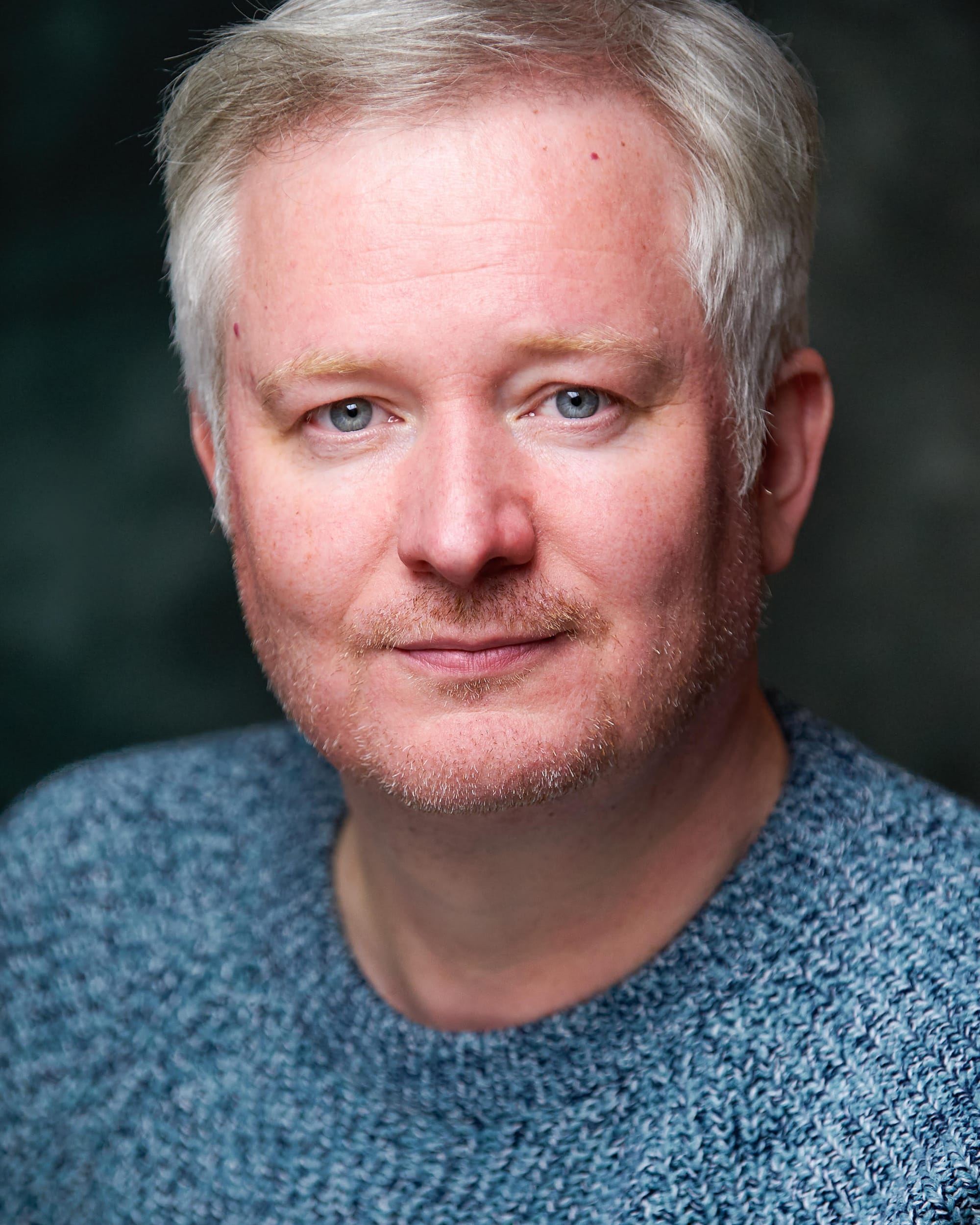
LEIGHTON PUGH (U/S Henry Lehman) trained at LAMDA. His work in theatre includes The Lehman Trilogy, The Habit of Art, Rocket to the Moon and A Woman Killed with Kindness at the National Theatre; Operation Epsilon at the Southwark Playhouse Elephant; There at the Royal Court; Faustus at the Etcetera; Macbeth and True West at the English Theatre, Essen; and The Birthday Party at the Harold Pinter. TV includes 50 Ways to Kill Your Lover, Grandpa in my Pocket and Fingersmith. Radio includes Words and Music: Dante, Scenes from Provincial Life, Murder by the Book, Gawain and the Green Knight and The Tragical Adventures of Heinrich von Kleist. Leighton Pugh has recorded audio dramas for Big Finish Productions and narrated more than two hundred fiction and non-fiction audiobook titles.
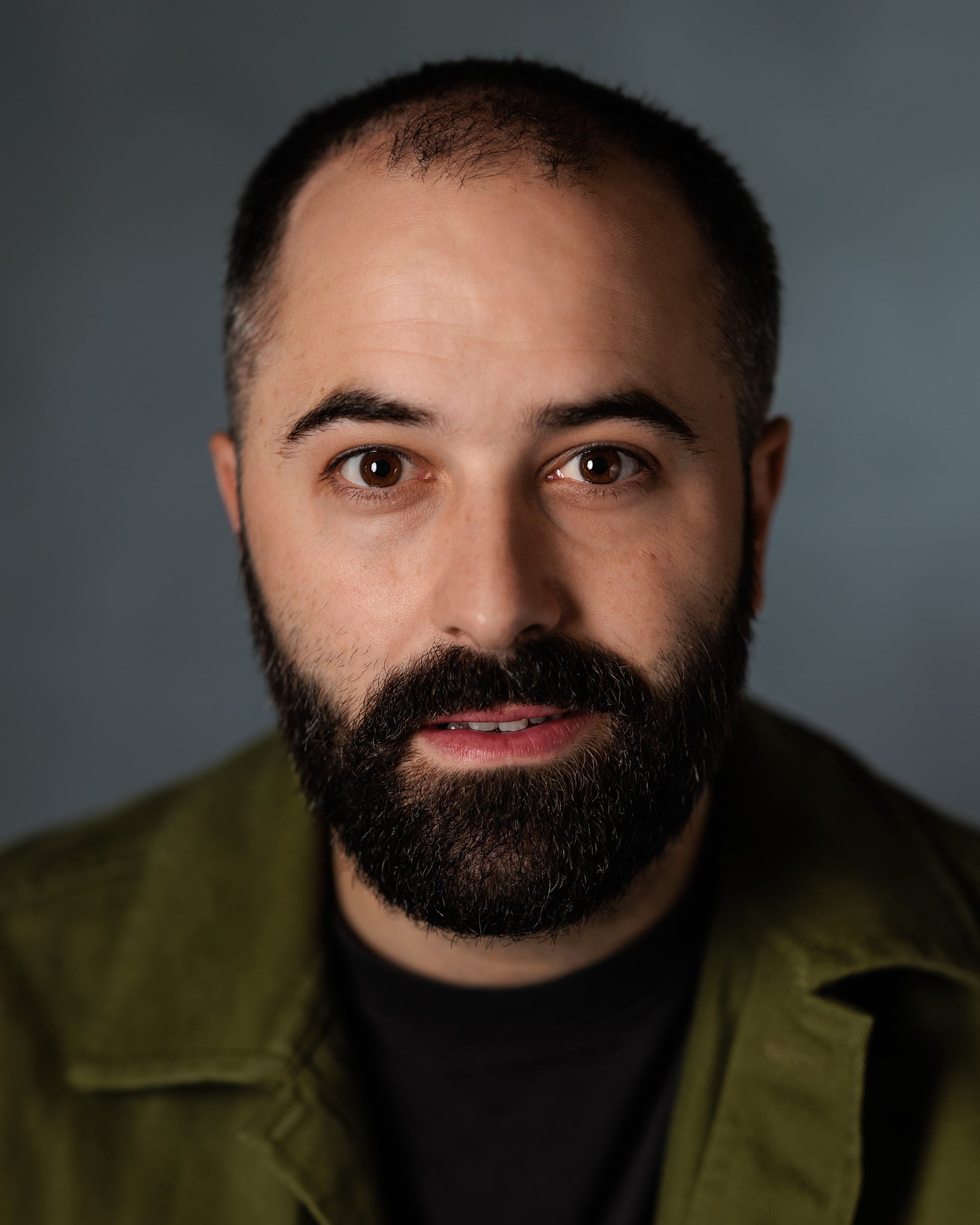
SIMON VICTOR (U/S Mayer Lehman) trained at Bristol Old Vic Theatre School. His work in theatre includes War Horse and The Curious Incident of the Dog in the Night-Time for the National Theatre; Party and Glisten at the Half Moon; Quiz, The Adventure, The Governess and The Seagull on UK tour; Guardians of the Galaxy for Marvel and Secret Cinema; Doctor Who: Time Fracture for BBC and Immersive Octopus; and The Last Tycoon in the West End. TV includes The Fear.
STEFANO MASSINI (Author) is a novelist, playwright and a writer for the Italian newspaper La Repubblica. His works include The Lehman Trilogy, Intractable Woman, Ladies Football Club and 7 Minutes. He is the recipient of numerous awards including the Premio Vittorio Tondelli, the Premio Ubu, Tony Award, Drama Guild Award and Outer Critics Circle Award. The Lehman Trilogy won the Selezione Campiello Prize, the Super Mondello Prize, the De Sica Prize, the Prix Médicis Essai and the Prix Meilleur Livre Étranger. Stefano Massini is currently working on a multi-part play about the history of the atomic bomb, entitled Manhattan Project.
BEN POWER (Adaptation) is a Tony Award-winning writer for theatre, television and film. He has worked with the National Theatre since 2010, including six years as Deputy Artistic Director and two years programming The Shed. His work for the National Theatre includes adaptations of The Lehman Trilogy, Husbands & Sons, Medea and Emperor and Galilean. He has collaborated as a dramaturg and writer with the RSC, Complicité and Headlong, where he was Associate Director and adapted Six Characters in Search of an Author and Dr Faustus. His work in TV includes Munich: Edge of War for Netflix and The Hollow Crown (BAFTA Award).
SAM MENDES (Director) founded and ran the Donmar Warehouse in London for ten years. He was a founding director of Neal Street Productions. His work has been seen at the National Theatre, Royal Shakespeare Company, Royal Court, Old Vic, Young Vic, Brooklyn Academy of Music, the West End and on Broadway. Most recently he has directed The Motive and the Cue at the National Theatre and in the West End, The Lehman Trilogy and The Ferryman in both London and New York. Films include American Beauty, Road to Perdition, Jarhead, Revolutionary Road, Away We Go, Skyfall, Spectre, 1917 and Empire of Light. Film awards include the Academy Award® for Best Director and Best Picture, three other Academy Award® nominations, five BAFTA Awards, three Golden Globe Awards, two Directors Guild of America Awards and the Producers Guild of America Award. In theatre, he has won five Olivier Awards, the Olivier Special Award, six Tony® Awards, four Evening Standard Awards, and the Hamburg Shakespeare Prize. He has also won the Directors Guild Award for lifetime achievement. He is an Honorary Fellow of the National Film and Television School, and a Fellow of Peterhouse, Cambridge. He was made a CBE in 2000 and knighted in 2020 for services to drama.
ES DEVLIN (Scenic Design) is an artist and designer. Her recent work in theatre includes The Lehman Trilogy (also in the West End and on Broadway; Tony Award), The Motive and The Cue, Dear England, The Crucible, Light Shining in Buckinghamshire and Ugly Lies the Bone at the National Theatre; A Number at the Old Vic; Girls and Boys and The Nether at the Royal Court; Faith Healer at the Donmar; Hamlet at the Barbican; and Chimerica at the Almeida. Other designs and collaborations include Come Home Again for the Tate Modern; Conference of the Trees for COP26 in Glasgow; Memory Palace for Pitzhanger Manor; Forest of Us which forms part of the inaugural exhibition at Superblue Miami; stage sculptures for Beyoncé, The Weeknd, U2, Kanye West, Saint Laurent and Dior; the 2021 and 2022 Super Bowl halftime shows; Olympic ceremonies in London and Rio; and the UK Pavilion at EXPO 2020. Es Devlin has been awarded The London Design Medal, three Olivier awards, doctorates from the universities of Bristol, Kent and UAL, and a CBE. Her practice was the subject of the Netflix documentary series Abstract: The Art of Design.
KATRINA LINDSAY (Costume Design) is a set and costume designer working internationally in theatre, opera, ballet and film. Her work in theatre includes, as costume designer: The Motive and the Cue at the National Theatre and in the West End; Harry Potter and the Cursed Child (Olivier Award and Tony Award for Best Costume Design) in the West End, on Broadway and worldwide; Tammy Faye and American Psycho (also Broadway) at the Almeida; 101 Dalmatians at Regent’s Park; Burn for the National Theatre of Scotland and Edinburgh International Festival; Hamlet at the Barbican; and Les Liaisons Dangereuses (Tony Award, Outer Critics Circle Award and Drama Desk Award for Outstanding Costume) on Broadway; as set and costume designer: Hex, Small Island, Three Sisters, Mosquitoes, Behind the Beautiful Forevers, Death and the King’s Horseman and London Road at the National Theatre. Opera credits include Terry Gilliam’s Damnation of Faust and Benvenuto Cellini for the English National Opera and around the world. Film includes London Road (as production designer). Katrina Lindsay is an associate of the National Theatre and a member of the theatre design collective Scene/Change.
LUKE HALLS’s (Video Design) designs for theatre and opera include West Side Story on Broadway; The Starry Messenger, Everybody’s Talking About Jamie, The Moderate Soprano, Frozen, The Lehman Trilogy, 2071 and The Nether in the West End; Miss Saigon in Austria, Japan, Broadway and on UK tour; Linda and Girls & Boys at the Royal Court; Magic Mike Live at the London Hippodrome; The Book of Dust – La Belle Sauvage and My Name is Lucy Barton at the Bridge; Lucia di Lammermoor at Metropolitan Opera and LA Opera; Boris Godunov at Teatro alla Scala; Don Giovanni and Like Water for Chocolate at the Royal Opera House; Carmen and Madama Butterfly at Bregenzer Festspiele; and Atlas at the LA Philharmonic. Halls has designed visuals for Adele, Rihanna, Robbie Williams, Pet Shop Boys, The Rolling Stones, Elton John, U2, Paris Fashion Week, Frameless Immersive Art Experience, FIFA World Cup Opening Ceremony 2022, Olympic Paralympic 2012 closing ceremonies and Pan American Games 2019 opening ceremony. Halls has received a 2020 Drama Desk Award for West Side Story, Knight of Illumination Awards in 2014, 2015 and 2016, and a BAFTA for The Cube.
JON CLARK (Lighting Design) is an award-winning lighting designer. His work in theatre includes The Effect, Dear England (also Prince Edward), The Motive and the Cue (also Noël Coward), The Lehman Trilogy (also Gillian Lynne and Broadway; Tony Award© and Outer Critics Award), Amadeus, ANNA, Othello and Hamlet at the National Theatre; The Inheritance (also Broadway; Olivier Award) and The Jungle (also St. Ann’s Warehouse, New York) at the Young Vic and in the West End; Cyrano de Bergerac in the West End and at Brooklyn Academy of Music; Evita at Regent’s Park; The Lorax at the Old Vic, in the US and Toronto; The Shark is Broken, Betrayal, King Charles III in the West End and on Broadway; Stranger Things: The First Shadow at the Phoenix; A Doll’s House on Broadway; and multiple collaborations with the Royal Shakespeare Company and many other companies in the UK and internationally. Opera includes Pique Dame at Bayerische Staatsoper; Hamlet (also Glyndebourne) and The Exterminating Angel (also Royal Opera House and Saltzburg Festival) at the Metropolitan Opera; Written on Skin at Festival d’Aix-en-Provence, the Royal Opera House, Lincoln Center and internationally. Dance includes LORE for Wayne McGregor at La Scala, Milan; and The Cellist for Cathy Marston at the Royal Ballet. Jon Clark won a Green Room Award for Krol Roger in Australia.
NICK POWELL’s (Composer and Sound Design) work in theatre includes The Lehman Trilogy (also West End, Broadway and Los Angeles; Olivier Award, Tony Award® and Drama Desk Award nominations), The Tell-Tale Heart and Othello for the National Theatre; A Mirror at the Almeida; Cuckoo, The Glow, Living Newspaper: Edition 1 and Edition 3, The Prudes, Bad Roads, Unreachable and X at the Royal Court; Julius Caesar at the Bridge; Peter Pan, Running Wild and Lord of the Flies at Regent’s Park; Mary and Raya at Hampstead; People, Places and Things at Stadsteatern AB, Stockholm; Running Wild at Chichester; Cold Calling: The Artic Project at Birmingham Rep with the City of Birmingham Symphony Orchestra; Alice in Wonderland at the Lyceum, Edinburgh; The Tempest for Norfolk and Norwich Festival; The Haunting of Hill House at Liverpool Everyman and Liverpool Playhouse; Lanark at the Citizens and for Edinburgh International Festival; The Hills of California, A Mirror, The Glass Menagerie, The Mirror and the Light and The Nether in the West End; and The Ferryman (Drama Desk Award, Tony Award® nomination) and Wolf Hall/Bring Up the Bodies in the West End and on Broadway. Film includes Un efecto óptico and 1917 (as music consultant). Event credits include Bloom at Edinburgh International Festival, ‘Reflections’ at the Guggenheim, Bilbao’s 20th anniversary event and music for half of Frameless, the immersive art exhibition in the West End. Nick Powell’s band Oskar have released two LP’s and produced soundtracks for Prada. His solo recordings include Walls Fall Down and Music from the Black Box. Nick Powell has received the Outer Critics Circle Award for Outstanding Sound Design. nickpowell.online
DOMINIC BILKEY (Co-Sound Design) is a Tony and Olivier nominated sound designer and is currently Head of Sound and Video at the National Theatre. He recently retired as Chairperson of the Association of Sound Designers and was a recipient of the Technical Theatre Awards (TTA) for Outstanding Achievement in Sound. He is actively involved in the teaching of sound and associated technologies at a number of UK universities. Sound design for online includes Original Readings, Viral (online film), Apollo 13 and Birdsong Online for Original Theatre. Sound designs for theatre include Stumped and Into the Night for Original Theatre Hybrid; Death of a Salesman (soundscape designer) for Elliott Harper Productions; Pippi Longstocking the Musical at the Royal & Derngate; Aladdin, Sleeping Beauty and Cinderella at Windsor Theatre Royal; The Lehman Trilogy (co-sound designer) at the National Theatre, in the West End and on Broadway; Peter Pan at the National Theatre and Troubadour White City; Shadowlands and Flare Path for Birdsong Productions; Jane Eyre at the National Theatre, Bristol Old Vic and on tour; Pinocchio for Guy James and Szpiezak Productions; Tommy the Musical for Aria Entertainment, Guy James and Szpiezak Productions; and Birdsong for Birdsong Productions/Original Theatre.
CANDIDA CALDICOT’s (Music Director) work in theatre includes, as musical director: The Lehman Trilogy (also West End, Broadway and Los Angeles) at the National Theatre; Queen Anne (also West End), Hecuba, The Witch of Edmonton, The Heresy of Love and The Heart of Robin Hood for the Royal Shakespeare Company; Jews. In Their Own Words at the Royal Court; Black Love (also Paines Plough) and The Seven Ages of Patience at the Kiln; The Wizard of Oz at Leeds Playhouse (as musical supervisor); Carmen – The Gypsy on UK tour; Peter Pan at Regent’s Park; The Little Mermaid at Metta and on UK tour; The Shadow Factory at The Nuffield; Woyzeck at the Old Vic; Snow White and Beauty and the Beast at The Lighthouse; It’s a Mad World My Masters for English Touring Theatre; Love’s Labour’s Lost for Oxford Shakespeare Company; Galileo at Birmingham Rep; Bed and Sofa at Finborough; The Vaudevillians at The Lowry and Charing Cross Theatre; A Strange Loop at the Barbican and in the West End; and The Hills of California, An Enemy of the People, To Kill a Mockingbird, King Lear and Beyond the Fence in the West End. As composer, her credits include, The Little Prince at Taunton Brewhouse and Metta; Zeraffa Giraffa for Little Angel and Omnibus; Buckets at the Orange Tree; 4 Pepys for Wilderness Festival; Hansel and Gretel, Treasure Island, Much Ado About Nothing, Pinocchio, Richard III, Alice in Wonderland, Alice Through the Looking Glass, Romeo and Juliet and The Wind in the Willows at the Iris; Macbeth for Shakespeare in Styria; Once Upon a Time at Booktrust tour; The Tempest and The Hostage at Southwark Playhouse. Recordings include The Little Prince (as composer), The Lehman Trilogy (solo piano), Prodigy (as orchestrator/music director) and The Battle of Boat (as music director).
POLLY BENNETT’s (Movement Director) recent work in theatre includes Peter Gynt (also Edinburgh International Festival), Rutherford and Son, The Lehman Trilogy (also West End and Park Avenue Armory), The Great Wave, The Deep Blue Sea and People, Places and Things (also St Ann’s Warehouse, New York and in the West End) for the National Theatre; House of Shades at the Almeida; Botticelli in the Fire and Hysteria at Hampstead; Venice Preserved, Maydays, Salomé, Henry V (at Shanghai Arts Centre) and A Midsummer Night’s Dream for the Royal Shakespeare Company; Sweat at the Donmar; The Village at Stratford East; White Teeth at Kiln; As You Like It and To Kill a Mockingbird (also UK tour) at Regent’s Park; Circle Mirror Transformation at Home, Manchester; Tell Me the Truth About Love at Sage for Streetwise Opera; Touch at Soho Theatre; Tribes at Sheffield Crucible; Woyzeck at the Old Vic; A Streetcar Named Desire at the Royal Exchange; Yen (also Royal Exchange) and Plaques and Tangles at the Royal Court; The Lion, the Witch and the Wardrobe and The Rise and Fall of Little Voice (also West Yorkshire Playhouse) at Birmingham Rep; The Angry Brigade (UK tour) and Mudlarks at the Bush; and Patriots, Cyrano de Bergerac, Travesties, Sweat, Don Juan in Soho, Doctor Faustus and The Maids in the West End. TV includes Black Doves, The Listeners, A Gentleman in Moscow, Kaos, Nolly, Wolf, The Great, The Crown, One Normal Night and Killing Eve. Film includes Deadpool 3, Bob Marley: One Love, Saltburn, Lady Chatterley’s Lover, Elvis, Pieces of a Woman, I Wanna Dance with Somebody, Chevalier, No Time to Die, Mogul Mowgli and Bohemian Rhapsody.
RORY MCGREGOR (International Tour Director) is a British theatre director based in New York and London. He holds an Masters of Fine Arts in Theatre Directing from Columbia University. His work in theatre includes, as an associate director: The Lehman Trilogy (also West End and Broadway) for the National Theatre; Sea Wall/A Life, Ink and M. Butterfly on Broadway. As director, No Good Things Dwell in the Flesh at A.R.T., New York; Buggy Baby at Astoria Performing Arts Centre, New York; Interior at 59E59, New York; Macbeth at The Connelly, New York; and The Great Divide at the Finborough, London. Rory McGregor was previously an Artistic Apprentice at Roundabout Theatre Company, an Artistic Associate of Classic Stage Company, a Directing Fellow at Manhattan Theatre Club and is currently an Artistic Representative on the Young Partner’s Board at The Public Theater.
ZOÉ FORD BURNETT’s (West End Director) work for the National Theatre includes The Motive and the Cue (as director) in the West End. Other work as director includes Titus Andronicus at the Arcola; Richard III, Romeo and Juliet, and A Life in the Theatre for Upstairs at the Gatehouse; Selected Sonnets at Shakespeare’s Globe; Click 2 Share at Theatre503; Hamlet at Riverside Studios; Blood Wedding and School for Scandal at Waterloo East; Wounds at Tristan Bates; Close Quarters at Royal Academy of Dramatic Art; 1984 at Guildford School of Acting; Julius Caesar at London School of Dramatic Art; and Macbeth at Mountview. As assistant director, work includes The Hills of California in the West End; Les Liasons Dangereuses, Teddy Ferrara, Splendour, The Vote, and Closer at the Donmar; and Henry V at Regent’s Park.
NAOMI DOWNHAM (Casting) is currently Casting Associate at the National Theatre. Her most recent work as a casting director includes Underdog: The Other Other Brontë, The House of Bernarda Alba and The Crucible (also at the Gielgud) at the National Theatre; Brown Boys Swim at Soho Theatre; Vardy v Rooney: The Wagatha Christie Trial at the Ambassadors; Athena at The Yard; and Hamlet and Jekyll and Hyde on school tours for the National Theatre. As casting associate, credits include The Motive and the Cue, Othello, The Corn is Green, The Normal Heart and The Ocean at the End of the Lane (also West End) for the National Theatre. Film includes Death of England: Face to Face.
KATIE CRADDOCK (Supernumerary Casting) is the literary manager and casting associate at A.C.T. Her favorite casting processes here so far include The Headlands, The Wizard of Oz, Big Data, and workshops of commissions by Aleshea Harris, Eisa Davis, Craig Lucas, RyanNicole Austin & Adesha Adefela & Beau Lewis, Anne Washburn, and Kate Attwell. Previously she was the artistic associate at Berkeley Rep, where she supported season planning, casting, and dramaturgy, mentored artistic fellows, moderated postshow discussions, taught playwriting and dramaturgy to teens, served on the board/staff antiracism taskforce, and facilitated the making of new plays at The Ground Floor. (she/her)
CHARMIAN HOARE (Dialect Coach) trained at the Central School of Speech and Drama. Her work in theatre includes Till the Stars Come Down, Jack Absolute Flies Again, Our Generation (also Chichester), Antipodes, The Deep Blue Sea, Angels in America, Consent, Peter Gynt, War Horse, The Curious Incident of the Dog in the Night-Time, I’m Not Running, Stories, The Lehman Trilogy, Barber Shop Chronicles, Peter Pan, Ugly Lies the Bone, Pinocchio, Network, John, The Great Wave, Absolute Hell and Translations at the National Theatre; White Christmas at Sheffield Crucible; Quiz on UK tour; Singin’ in the Rain at Sadler’s Wells; The Taxidermist’s Daughter, The Unfriend, South Pacific, Me and My Girl, Fiddler on the Roof, Plenty, Macbeth, This is My Family, Present Laughter and The Country Wife at Chichester; The Birds and the Bees at the New Wolsey, Ipswich; Fatal Attraction and Curtains on UK tours; Jesus Hopped the A Train at the Young Vic; Private Lives, Sweat, Welcome Home, Captain Fox! and One Night in Miami at the Donmar; Blue Door and Abigail’s Party at Theatre Royal Bath; The Light in the Piazza at the Royal Festival Hall; and Walden, Bonnie & Clyde, Company and The Comeback in the West End.
PETER CHAPMAN is the author of The Last of the Imperious Rich: Lehman Brothers, 1844-2008, a leading reference on the history of the Lehman family.
MARIUS ARNOLD-CLARKE (Company Stage Manager) work in theatre includes, as production manager, A Quiet Evening of Dance (also as company stage manager), BLKDOG, TORUS and M¡longa on international tours; Falling Man at Wilton’s Music Hall; Constellations, Sampled Festival, Dark Field Analysis and Requiem for Aleppo at Sadler’s Wells; Yorke Dance Project 20 Years on UK tour; Spamalot for Daegu Festival, South Korea; and Wild Tango at the Peacock; as company stage manager, Message in a Bottle, Common Grounds | Sacre, Infinite, Break the Tango, Sutra, Dystopian Dream, ¡Vamos Cuba! on international tours; Sylvia at the Old Vic; Burn the Floor on UK and Australian tours; Tree of Codes for Bastille, Paris; Project REBEL at the Barbican; and Gravity Fatigue at Sadler’s Wells.
SOPHIA DALTON’s (Deputy Stage Manager) work in theatre includes, as deputy stage manager, Nora: A Doll’s House and Wings at the Young Vic; Father Comes Home from the Wars at the Royal Court; The Judas Kiss on international tour; Thérèse Raquin and Relative Values at Theatre Royal Bath; Filthy Business, Wild Honey, Hapgood, Drawing the Line and A Human Being Died That Night at Hampstead; The Glass Menagerie at the Duke of York’s; Good People at Noël Coward; and Frozen at Theatre Royal Haymarket. As stage manager includes As You Like It for the RSC; The Winter’s Tale at Shakespeare’s Globe; and A History of Water in the Middle East, Fireworks and Adler & Gibb at the Royal Court. As company stage manager: Crooked Dances for the RSC; Portia Coughlan at the Almeida; The Long Christmas Dinner at the Abbey; and The Wider Earth at the Natural History Museum, London.
ELLIE LEAVER’s (Assistant Stage Manager) work in theatre includes, as assistant stage manager, Dear England (also Prince Edward Theatre), The Motive and the Cue, Standing at the Sky’s Edge, Phaedra and Romeo and Julie at the National Theatre; and My Neighbour Totoro at the Barbican. As props assistant: Oliver! at Chichester; Burlesque at Manchester Opera House; Legally Blonde at Regent’s Park; People, Places and Things at Trafalgar; and Mad House at the Ambassadors.
NATIONAL THEATRE (Producer) The National Theatre makes theatre that entertains and inspires using its creativity, expertise and unique reach. The National Theatre shares unforgettable stories with millions of audience members across the UK and around the world – on its own stages, on tour, in schools, on cinema screens and streaming at home. World-leading artists make their best work at the National Theatre with the widest possible audience and impact. The National Theatre invests in talent and innovation on stage and off, taking seriously its role as the nation’s theatre. Of the new productions developed each year with a wide range of theatre companies, a third of that research and development resource is dedicated to shows staged at theatres outside London, England. A registered charity with deeply embedded social purpose, The American Associates of the National Theatre (AANT) is the New York-based 501(c)(3) non-profit organization that promotes and supports the work of the National Theatre in both the UK and the United States. To become a member and enjoy National Theatre productions and events in the Bay Area and US year-round, visit aarnt.org. National Theatre Productions (NTP) aims to extend the life of National Theatre productions, without subsidy, in London’s West End, on tour throughout the UK, on Broadway, internationally, and in collaboration with co-producing partners around the world. Since 2009, NTP has transferred 19 productions to the West End, taken six productions to Broadway, toured the UK and Ireland extensively with a broad repertoire of productions originating at the National Theatre on the South Bank, and taken the Olivier and Tony®-Award winning productions of War Horse and The Curious Incident of the Dog in the Night-Time on tour around the globe. National Theatre productions have now been seen across five continents by over 15 million people worldwide. nationaltheatre.org.uk
NEAL STREET PRODUCTIONS (Producer) Neal Street Productions is one of the UK’s most respected production companies, producing award-winning film, television and theatre. Founded 2003 by Sam Mendes, Pippa Harris and Caro Newling, it makes distinctive, popular, award-winning projects on both sides of the Atlantic. TV series include: Call the Midwife, Britannia, Penny Dreadful, The Hollow Crown. Films include Mendes’ Empire of Light, 1917, Away we Go, Revolutionary Road, and Things We Lost in the Fire. Currently running in the West End is The Hills of California by Jez Butterworth (a co-production with Sonia Friedman Productions). Other recent theatre includes The Motive and the Cue by Jack Thorne (a co-production with the National Theatre), Hamnet, a stage adaptation by Lolita Chakrabarti based on Maggie O’Farrell’s novel (a co-production with the Royal Shakespeare Company), Walking with Ghosts starring Gabriel Bryne, The Ferryman by Jez Butterworth, the new stage adaptation of Local Hero and the national tour of Charlie and the Chocolate Factory. In 2015 Neal Street moved under the umbrella of parent company, All3Media.
ADDITIONAL CREDITS
Katie Long, Sound No. 1
Elliott Wallis, Sound No. 2
Patrícia Gilvaia, Automation Operator
Rob Hearn, Tech Swing
Caroline Hannam, Head of Wardrobe
Cassie Murphie, Wigs Hair and Makeup Technician
Jim Leaver, Production Manager
Jason Vaughan, Head Video
Gabriel Armstrong, Key Video
Henry Cotter, Lighting Key
Russ Milligan, Technical Director
Omar Stewart, Production PA
Solomon Casado, Production PA
PRODUCTION CREDITS
Set built by Scott Fleary
Automation Equipment supplied by Absolute Motion Control
Glass supplied by GG Glass & Glazing
Sound equipment supplied by Stage Sound Services
Lighting equipment supplied by Christie Lights
Video equipment supplied by Stage Sound Services
Production Health and Safety, John Young Creative Industries
Rehearsal Room, 3 Mills Studios, Sugar Studios
Rehearsal Set, RK Resource
Physiotherapy, Neurotour
Automation Programmer, Richard Booth
Automation Engineer, Jesse Caie
Glazier, Mark Irving
Production LX, Jack Williams, Stephen Andrews
Production Sound, James Crichton, Bob Burrows
Lighting Programmer, Sarah Brown
Production Video and Programming, Andrew Gusciora
Production Carpenters, Craig Emerson, Martin Riley, Paul Hennessy
Freight, Freight Minds
With Special Thanks to Rabbi Daniel Epstein, Andrew Frostick, Sarah Corke, Paulina Kominiak, Pirate Crew
Additional Music Credits
‘The Beat Goes On’
By Sonny Bono (published & licensed by Wixen Music Publishing, Inc)
Rehearsal Photography, Mark Douet
NATIONAL THEATRE
Chair of the National Theatre Board, Sir Damon Buffini
Director of the National Theatre and Joint Chief Executive, Rufus Norris
Executive Director and Joint Chief Executive, Kate Varah
Director Designate, Indhu Rubasingham
Registered Charity No: 224223
Registered as a company limited by guarantee in England: 749504
NATIONAL THEATRE PRODUCTIONS
Executive Producer
Kash Bennett
Managing Director
Vicky Hawkins
Director of Marketing
Heather Epple
Head of Production and General Management
Kimberley Thomas
Deputy Head of Production and General Management
Emma Gaynor
Interim General Manager
James Triner
General Manager
Jack Bull
Associate General Managers
Mari Kondo, Demid Naumov, Sarah Perryman
Assistant to the Director and Production Coordinator
Daisy Milner
Production Coordinator
Sophie Visscher-Lubinizki
Production Coordinator
Minoli De Silva
Production and Office Assistant
Kirsten Buckmaster
Technical Director
Spencer New
Technical & Production Assistant
Andrew Pellett
Production Accountant
Charlie Titterrell
Management Accountant
Nikhil Bolton-Patel
Assistant Management Accountant
Cassandra Greenburg
Finance Assistant
Miranda Ford
Head of Marketing
Scott Skelton
Head of Press & Communications
Clare McCormack
Head of Sales & Ticketing
Daren Sellwood
Senior Press Officer
Holly Nicholls
Senior Marketing Officer
Georgia Gill
Marketing & Press Assistant
Martha Bennett
Ticketing Assistant
Joshua Johnson
Welfare Advisor
Bella Jackson, Danielle Osajivbe-Williams
NEAL STREET PRODUCTIONS
Theatre Producers
Caro Newling, Georgia Gatti
Directors
Nicolas Brown, Pippa Harris, Sam Mendes, Caro Newling
Head of Operations
Caroline Reynolds
Executive Assistant to Sam Mendes
Gabriella Rauchwerger
Chief Financial Officer
Michael Cornelius
Head of Production
Milly Leigh
Executive Producer
Julie Pastor
Head of Development
Lola Oliyide
Coordinator
Melanie Davis
Development Coordinator
Jessica Da Silva
Neal Street Productions is an All3Media Company
Interview with Stephen Whitfield
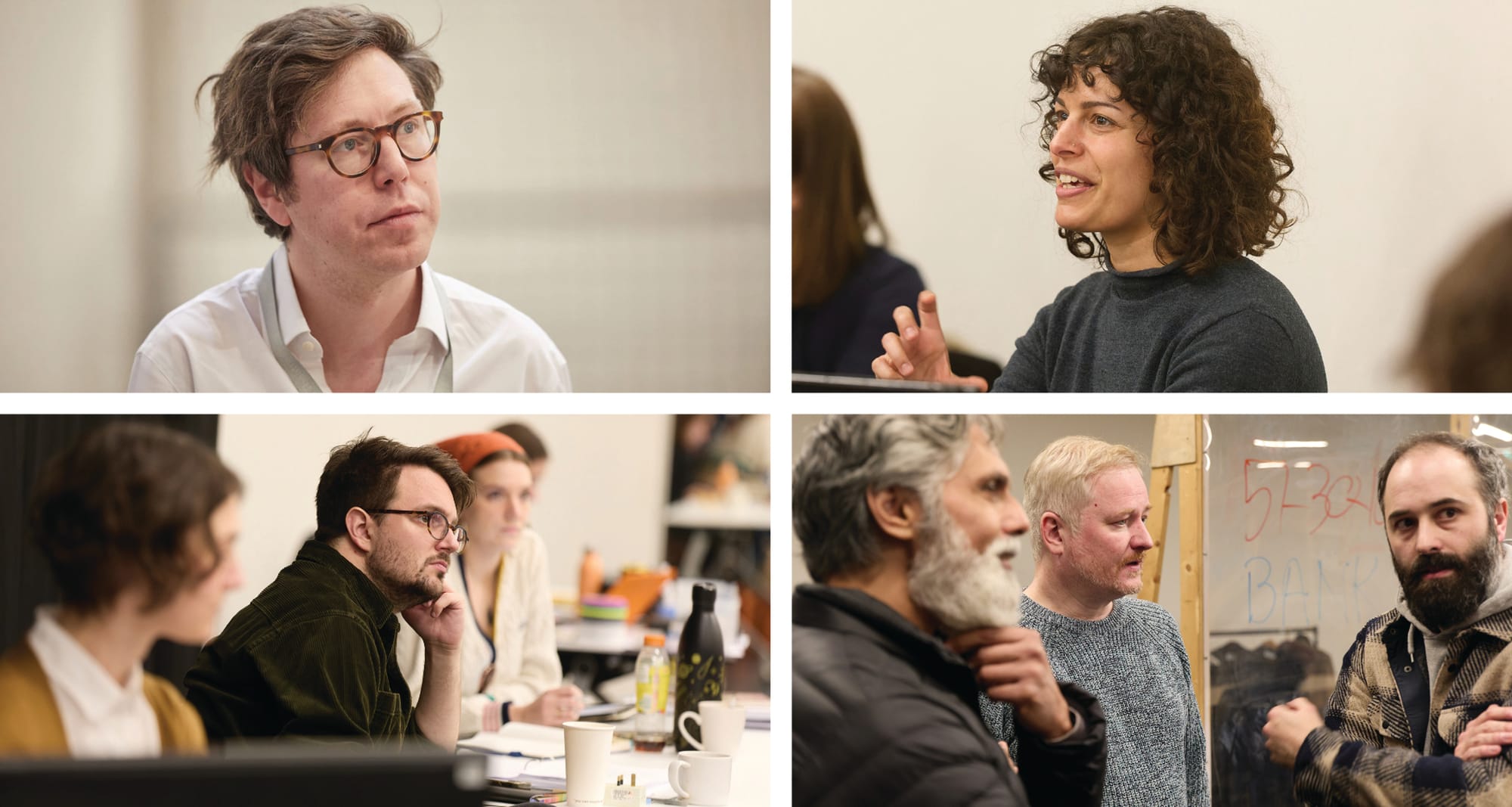
This interview was conducted by Julie Felise Dubiner, dramaturg at The Huntington Theatre, and originally appeared on their website and as an abridged version in their program.
The Lehman Trilogy stretches across 150 years—both the story of a family and of a corporation. How can we contextualize the world that the Lehmans entered when they arrived in America?
The Lehman Trilogy marks the intersection of Southern history and Jewish history, especially in the antebellum period, in that first section of the play. The three brothers arrived in Alabama as part of the second wave of Jewish immigrants to the United States, after the very small first wave of the colonial period, and about four decades before the vaster third wave that constitutes the demographic origins of contemporary Jewry. The first wave settled basically in ports and coastal cities, beginning in 1654 in New Amsterdam (later called New York). The third wave came overwhelmingly from eastern Europe (the Tsarist Empire) and from parts of central Europe (the Hapsburg Empire).
Henry, Emanuel, and Mayer Lehman typified the second wave. Immigrants like them tended to come from villages in the German states, rather than from towns or cities. The Lehman brothers had not lived in a ghetto, nor did they (as did Jews further to the East) reside in the sorts of towns (or shtetlach) that were predominantly or heavily Jewish. The play depicts the brothers as observant, in the sense that they celebrate religious holidays and also honor mourning rituals. But the Lehmans are already quite acculturated (a process that presumably already began in Bavaria); and little friction is generated as they get absorbed into the social and economic life of Alabama. They differ from other whites in Montgomery, but the Lehmans are not isolated. They are engaged with the forces around them. Though the brothers start out poor, they don’t seem wretchedly or miserably poor. By contrast a government report in 1900 claimed that the average Jewish immigrant from eastern Europe arrived with $9.
Unlike other European immigrants, the Jews of the Lehmans’ generation did not join the working class, but went into business for themselves, especially in the South. Why?
Generally forbidden from owning land in Europe, and from joining the feudal guilds of craftsmen, Jews historically pursued trade and finance, despite the precariousness of such endeavors and despite the suspicions and superstitions that might dangerously result. Capitalism required rationality, calculation, deliberation, deference of gratification, as well as efforts at planning and foresight. Such qualities gave immigrant Jews something of a head start when they made their way in America. They avoided agriculture. “Ol’ Man River” (1927) summarized an occupational predilection. Jews planted neither taters nor cotton; and in putting family names on the stores that they founded, these merchants and other businessmen would not be forgotten. Jews preferred self-employment, as the Harvard historian Oscar Handlin once explained. Independence enabled them to avoid bosses who might be cruel, or arbitrary, or abusive or antisemitic.
Was there any secret to the success of a family like the Lehmans?
The play suggests that the brothers had an aptitude for noticing needs and opportunities and methods that other merchants failed to discern. Such attributes are neither palpable nor easily definable. But however elusive such acumen is, however difficult to specify, the explanation that The Lehman Trilogy gives is as good as any. But circumstances matter too. No insurmountable institutional barriers to growth and expansion existed; and the absence of internal tariffs and customs duties enabled the brothers to move easily beyond Montgomery, when they chose to do so. They were adaptable; they were open to novel ways of enrichment; they even took advantage of disasters like a devastating fire. Such flexibility, such concentration upon their affairs would be rewarded.
Why doesn’t The Lehman Trilogy recount antisemitism?
The simplistic answer is that there wasn’t any—or at least not enough to constitute any sort of impediment to upward mobility. Antisemitism is notoriously tricky to measure. But the antebellum South in which the Lehmans operated was rather free of that sort of bigotry, and the obvious explanation is that the white South directed its animus elsewhere. Jews were generally assumed to exist on the right side of the color line, benefitting from a caste system that gave them a taste of unprecedented freedom—at the expense of enslaved persons of African descent. The brothers themselves owned slaves, which the play happens to conceal. Henry Lehman does acknowledge that slavery was evil—“a crime” that meant that “the ground beneath our feet is poisoned.”
By the late nineteenth century, evidence of considerable antisemitism could be found. The accumulation of private wealth in cities like New York, where the Lehmans lived, generated social restrictions against Jews who belonged approximately to the same class. This was snobbery. Among the other classes (North and South), urbanization and industrialization ignited resentment, anxiety, and conflict; and Jews sometimes became victims. The play shows the Lehmans and their descendants living within a rarified social circle, as stratification emerged more sharply among Jews themselves. Denominational consequences are depicted in The Lehman Trilogy too. The Lehmans belong to a Reform synagogue like Temple Emanu-El, located on elegant Fifth Avenue in New York City. Reform valued decorum more highly than fervor; differences from Christianity were minimized for the sake of comity and inclusion in America.
How can the rise and fall of the Lehmans serve as a paradigm for the history of American capitalism?
The Lehmans should be understood as integral to the national self-definition. Alexis de Tocqueville generalized that “in democracies nothing is greater or more brilliant than commerce. It attracts the attention of the public and fills the imagination of the multitude. All energetic passions are directed toward it.” By tying their fate to such a society, the Lehmans made themselves into authentic citizens of the rambunctious and dynamic order that the French aristocrat had described a decade before Henry Lehman’s arrival.
Part I of The Lehman Trilogy shows how imaginatively and cleverly the three brothers became middlemen, or brokers, connecting the cotton that was picked in one part of the nation to the manufacturing demands of clothing and textiles that characterized another part of the nation. The Lehmans thus helped to entwine economic interests and to enlarge and extend wealth. But increasingly the Lehmans lost their direct association with actual goods, and prospered instead through abstractions, though the manipulation of financial instruments and services. An agrarian economy is subject to the caprices of nature. An industrial economy and then a postindustrial economy are vulnerable to cycles of boom and bust. The Lehmans survived the catastrophe of October 1929. In hands other than their own, their enterprise could not survive the debacle of September 2008.
The first generation, for all of its astuteness and tenacity and ambition, need not be romanticized. That the brothers thrived in a society built on human bondage cannot be deplored enough—even if, for them, what Henry calls in the prologue “that magical music box called America” proved to be harmonious. But perhaps the larger theme of this remarkable play is the curse of economic instability, the oscillation that capitalism demands between risk and responsibility, and the frustrated hopes of continuity.
Print Edition
